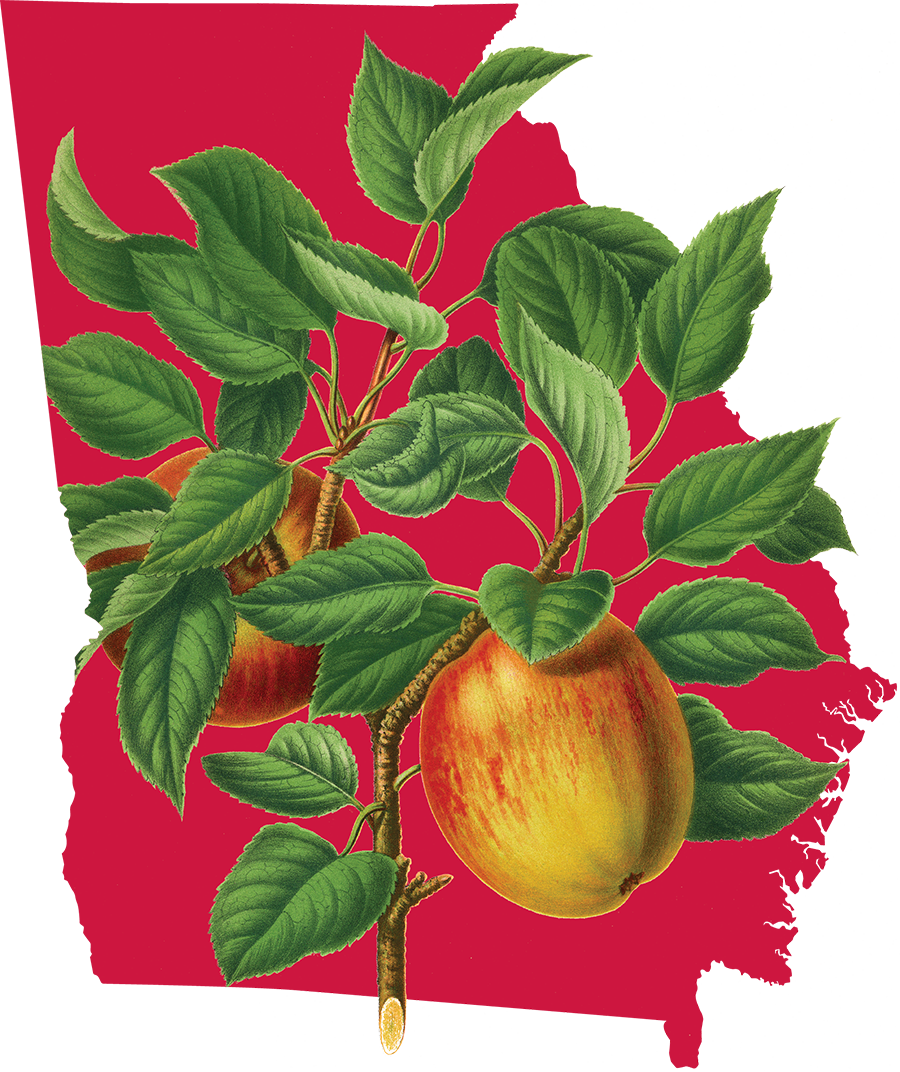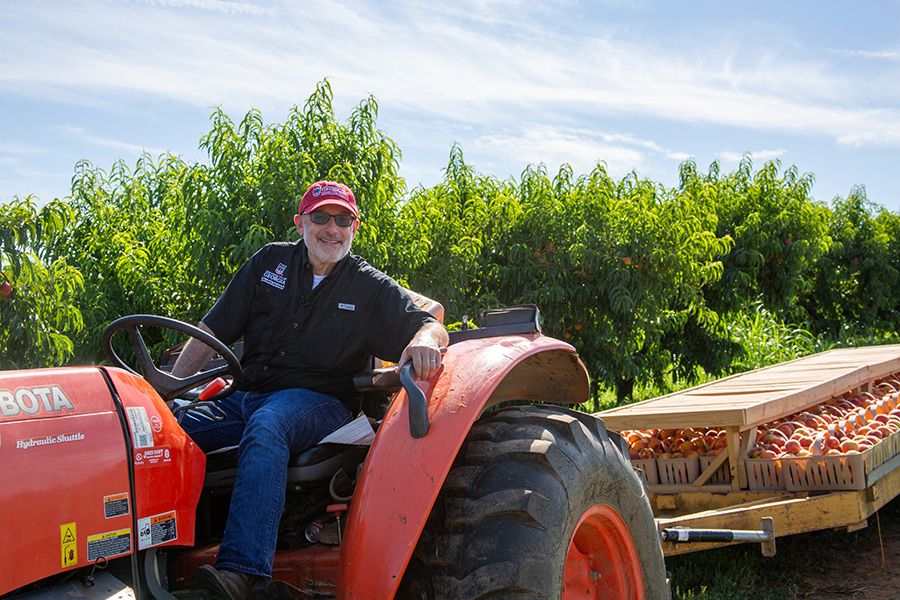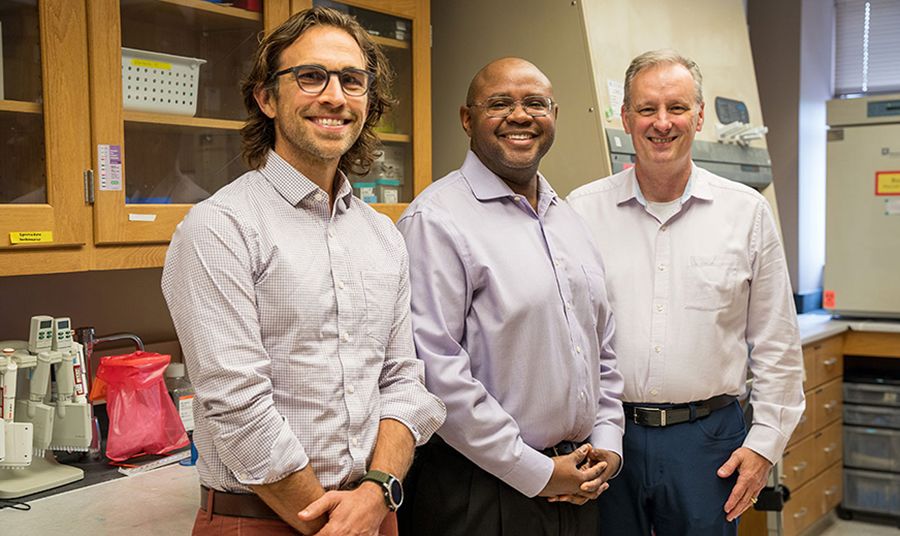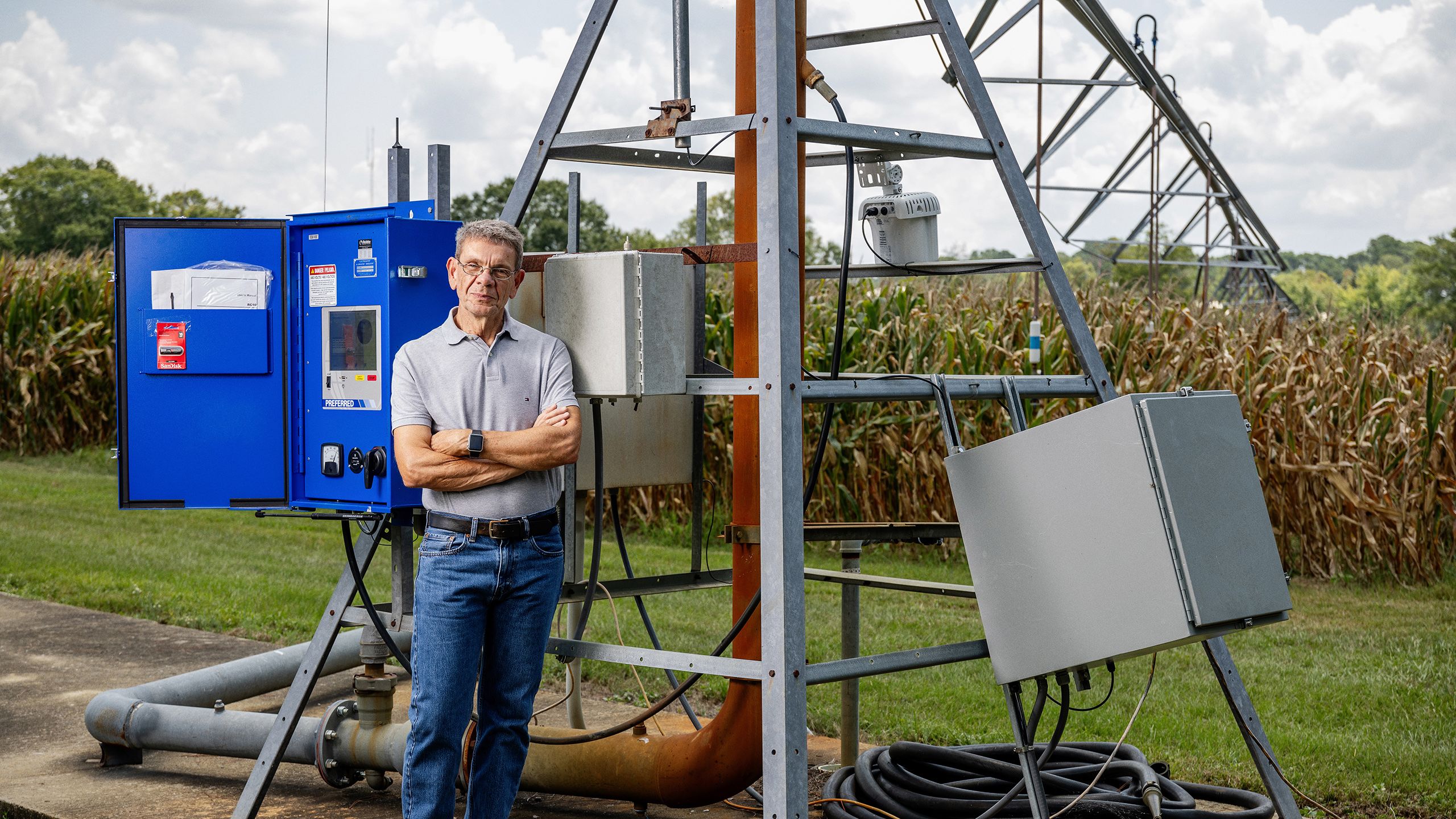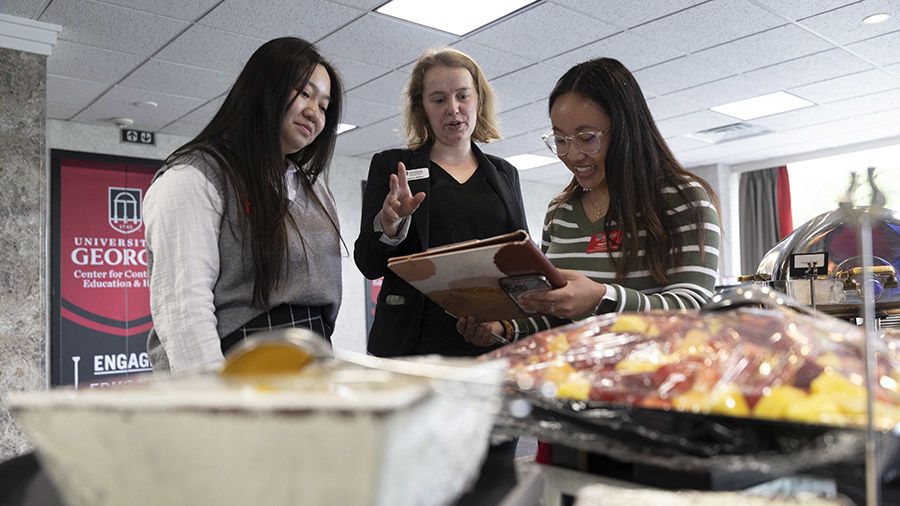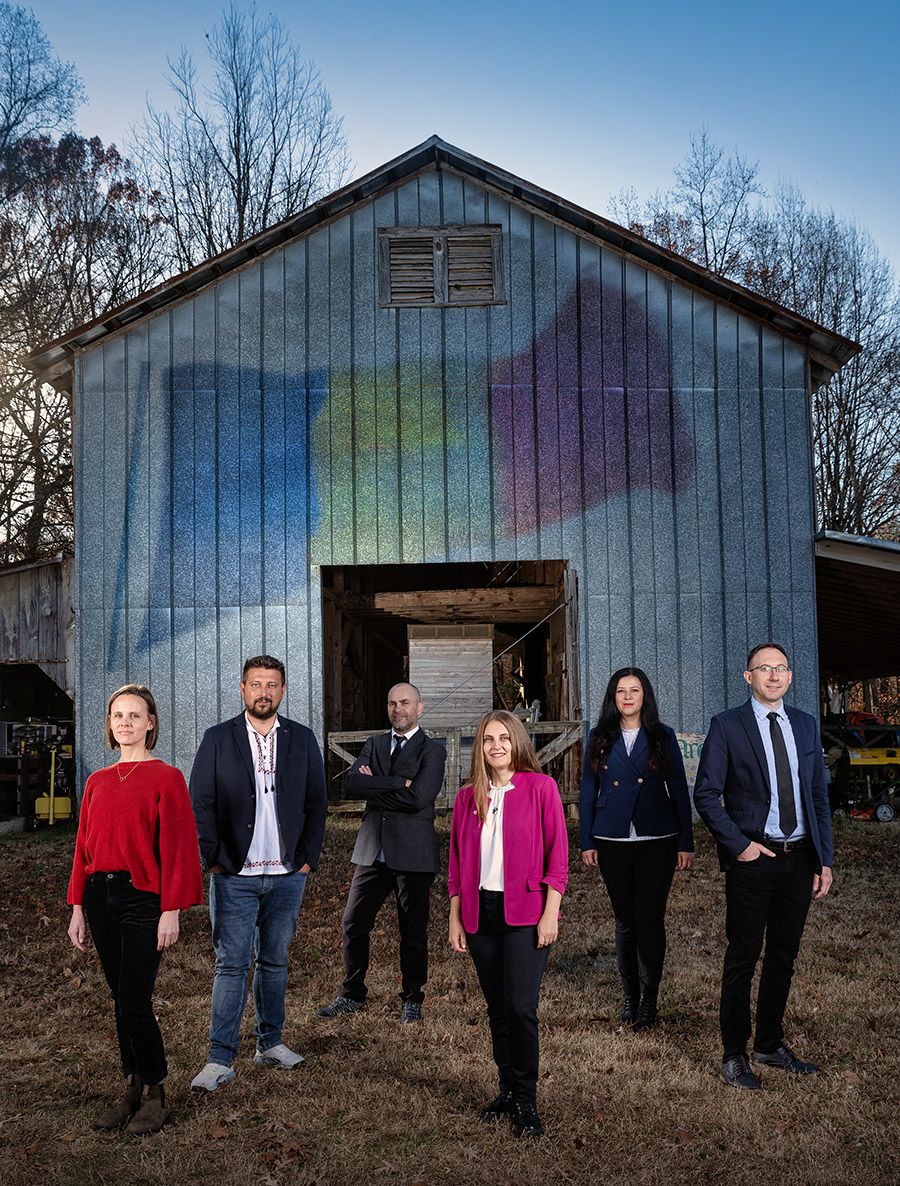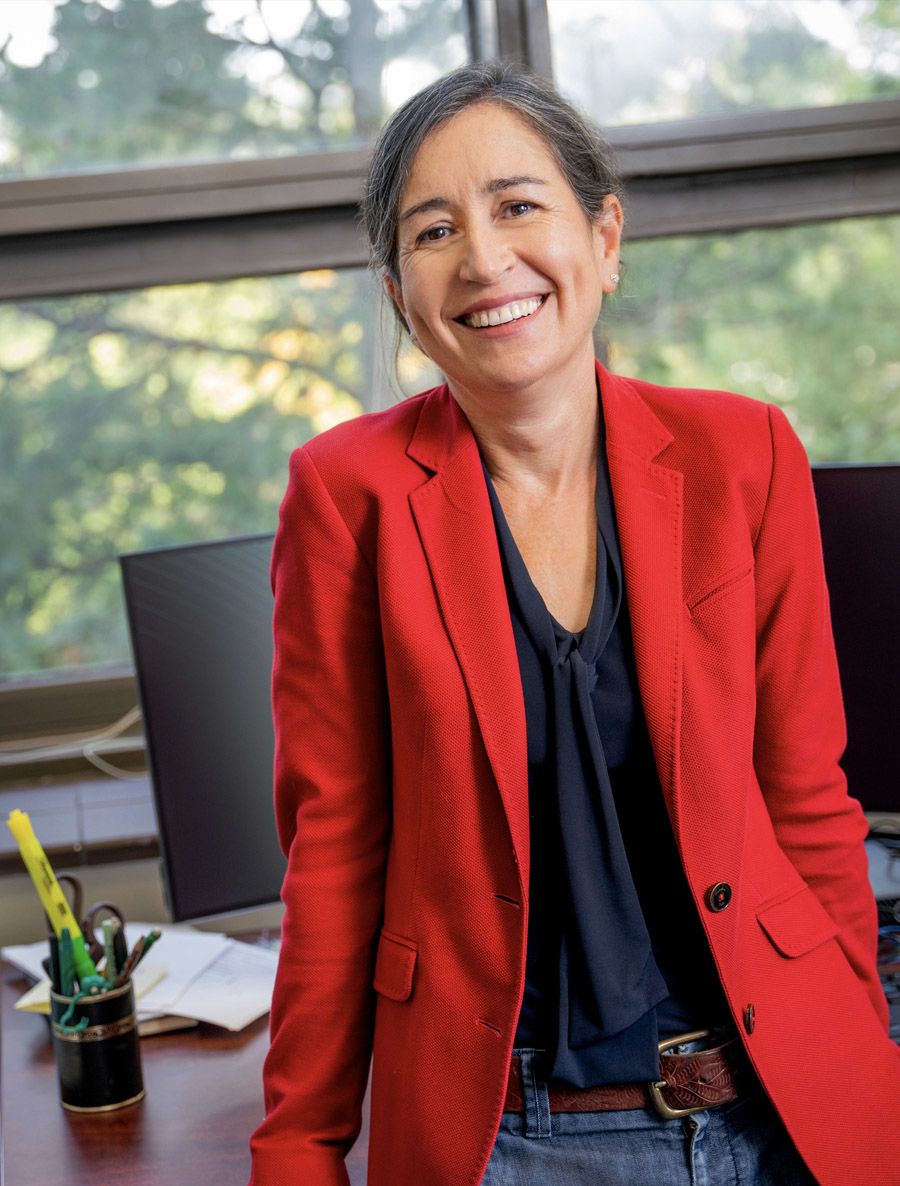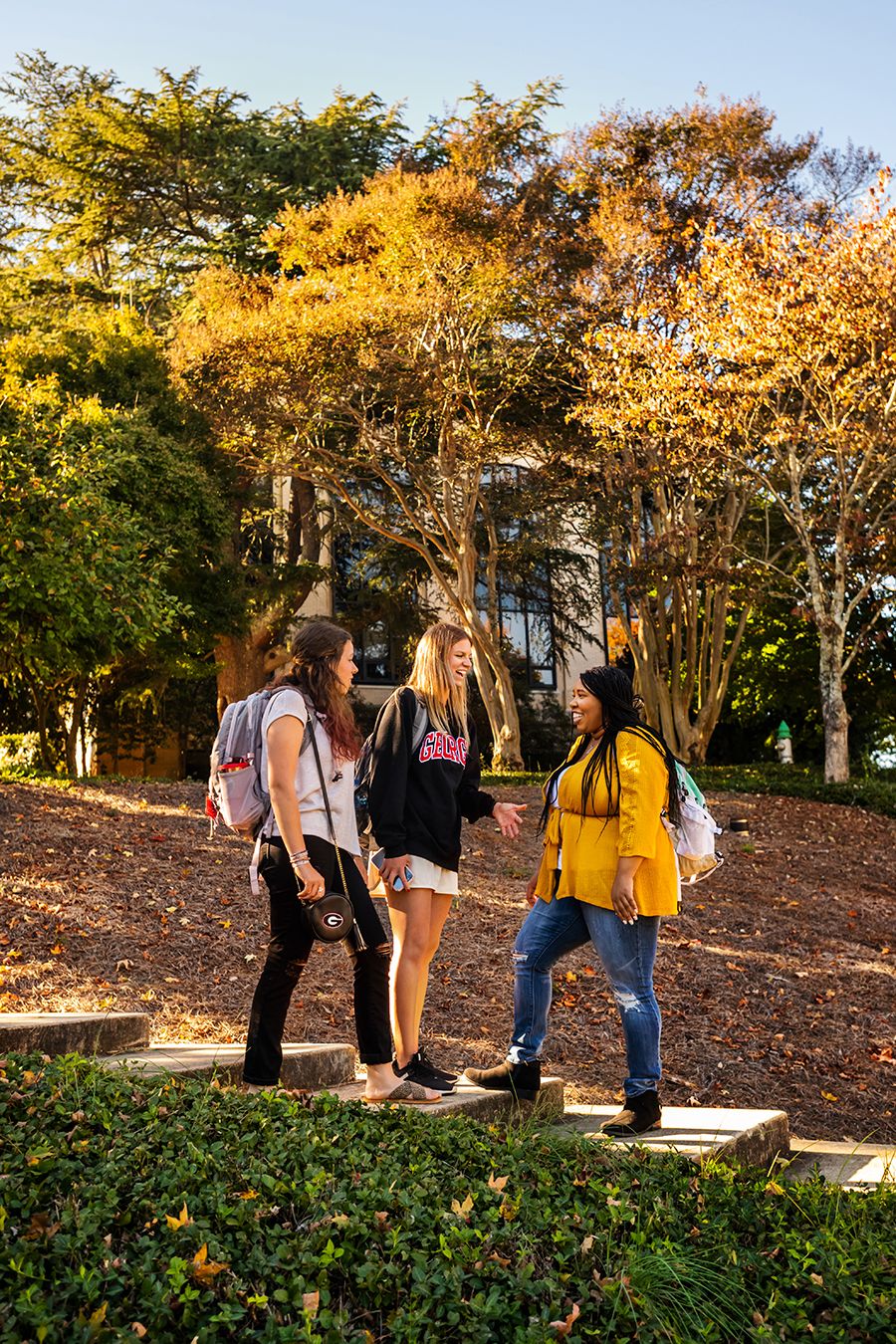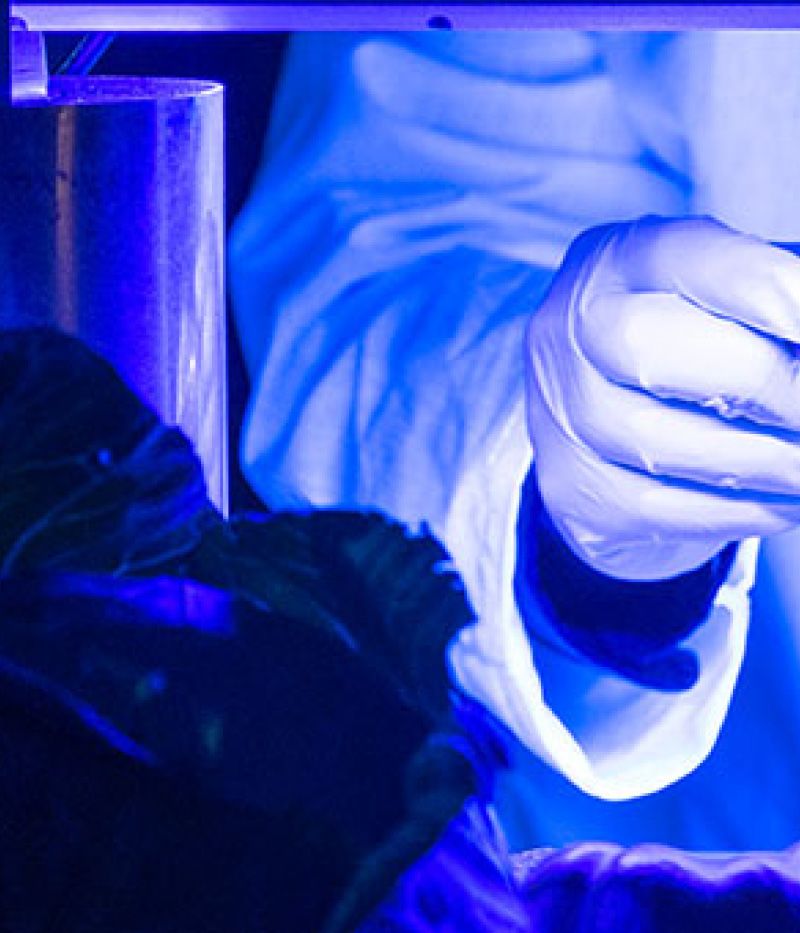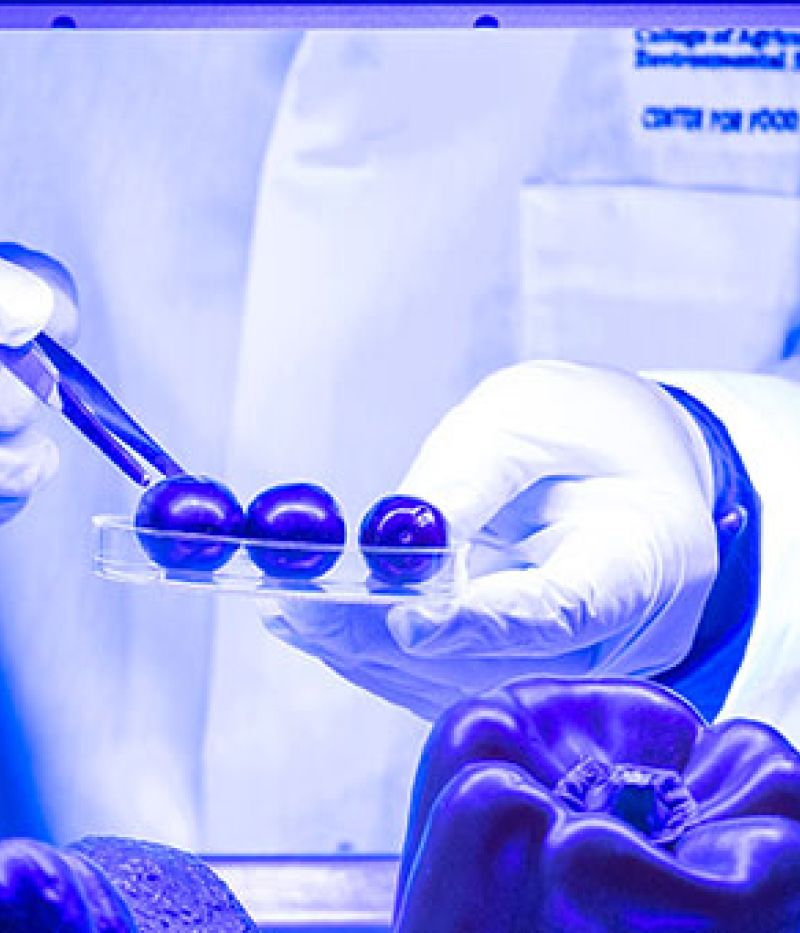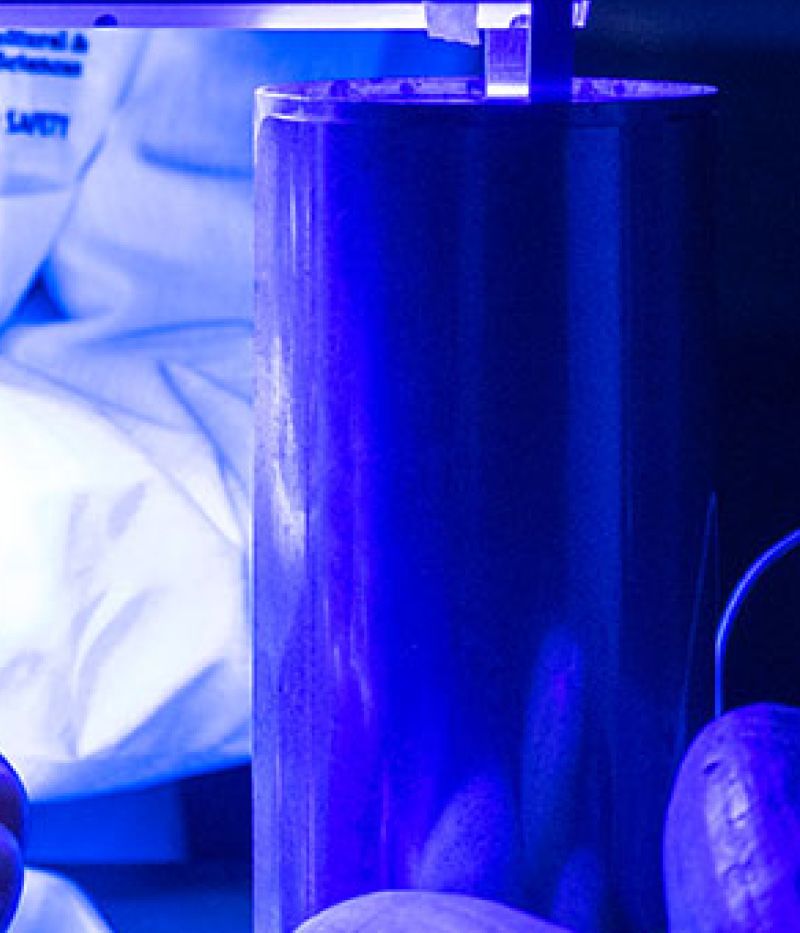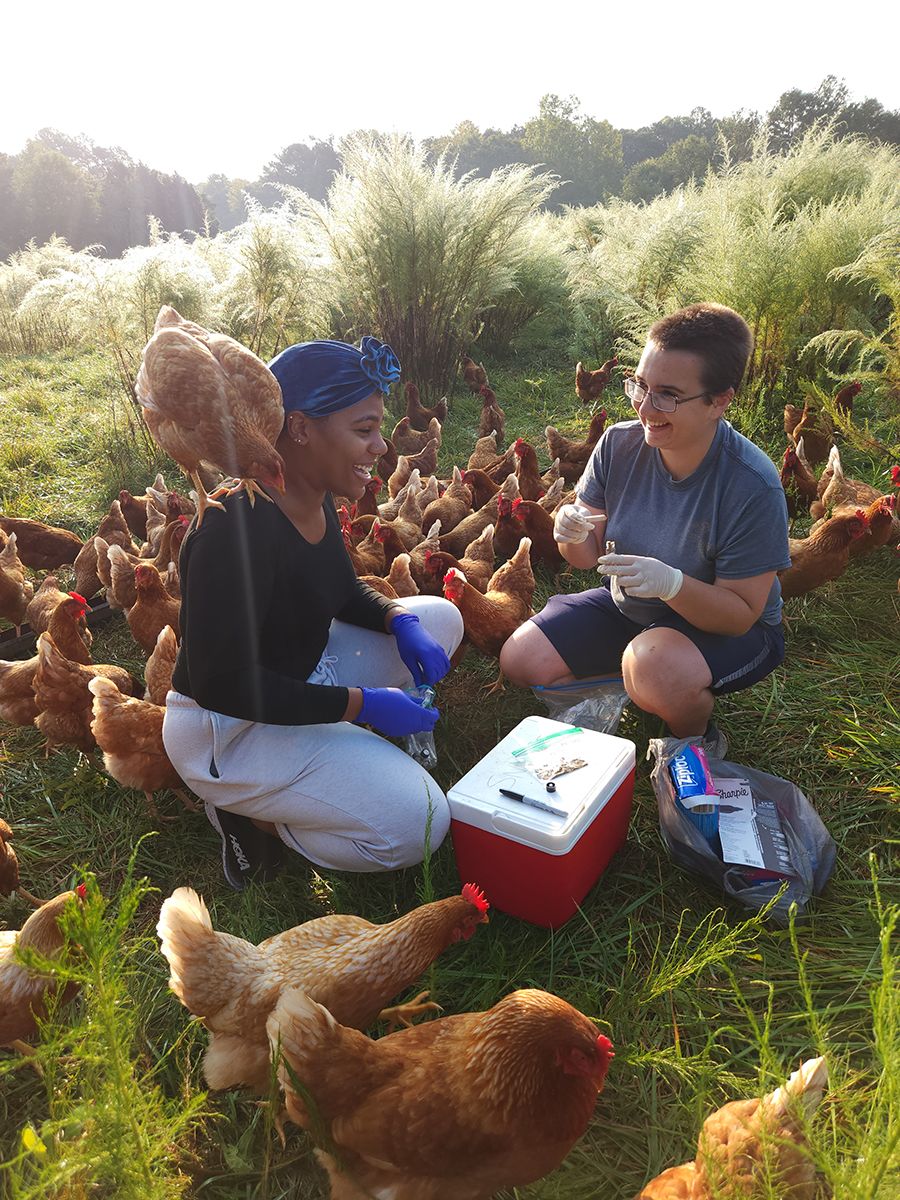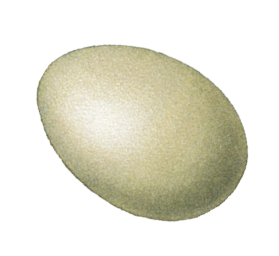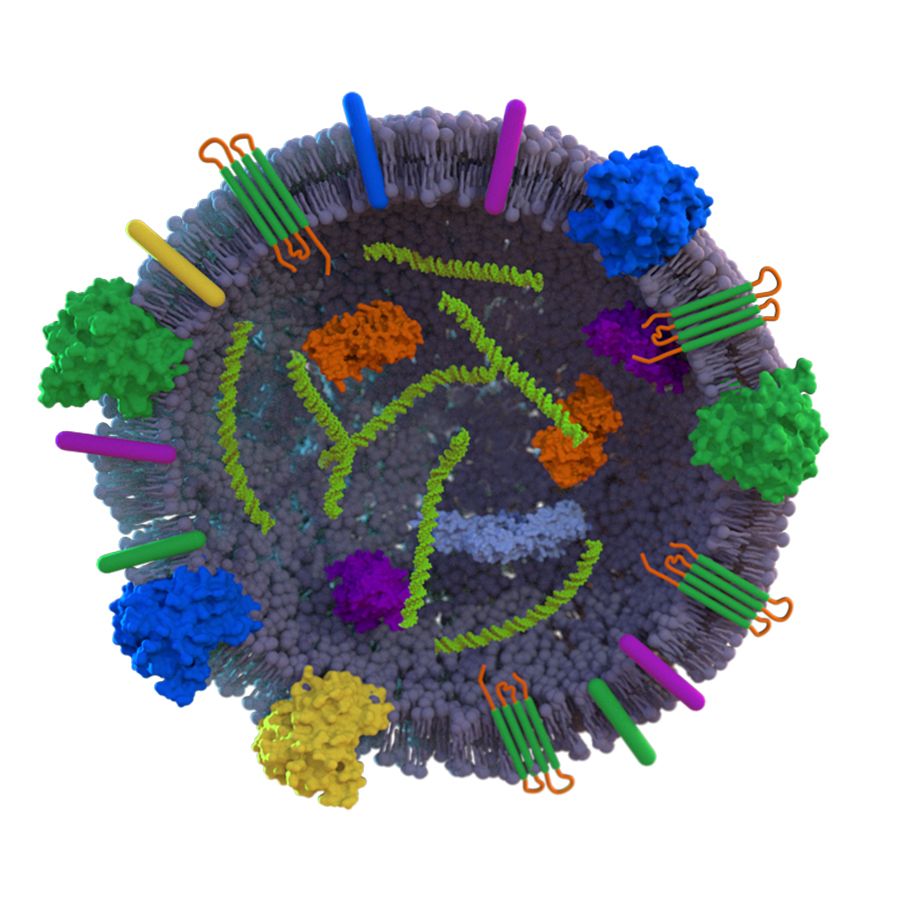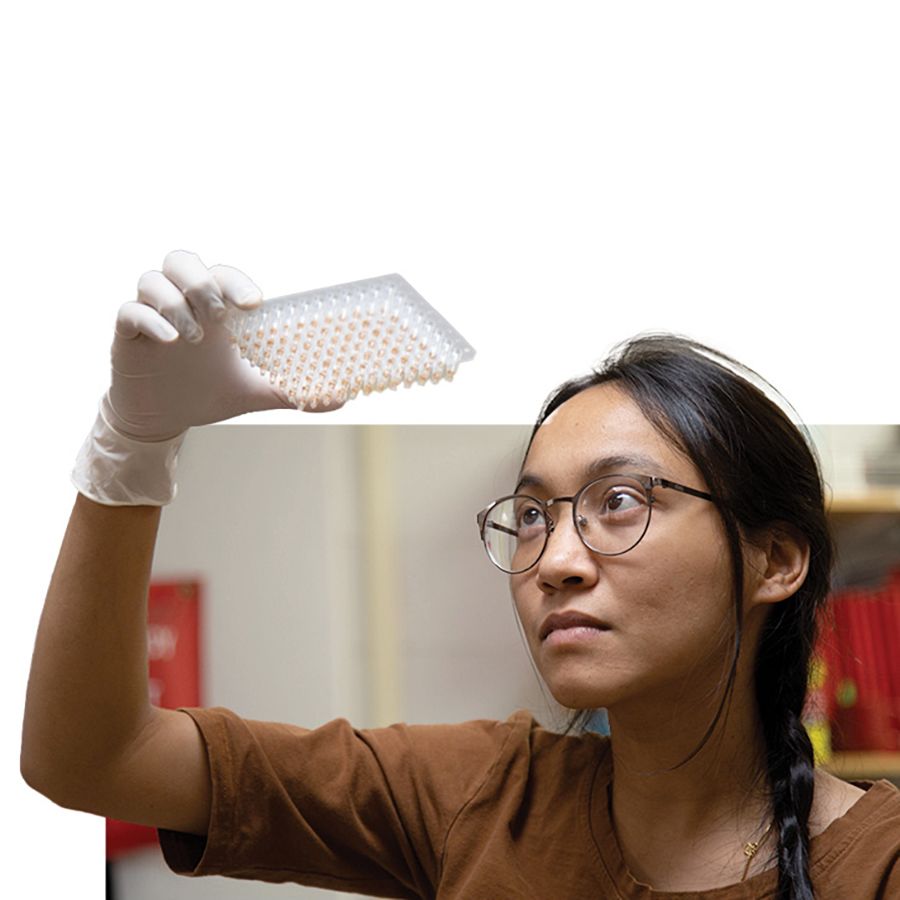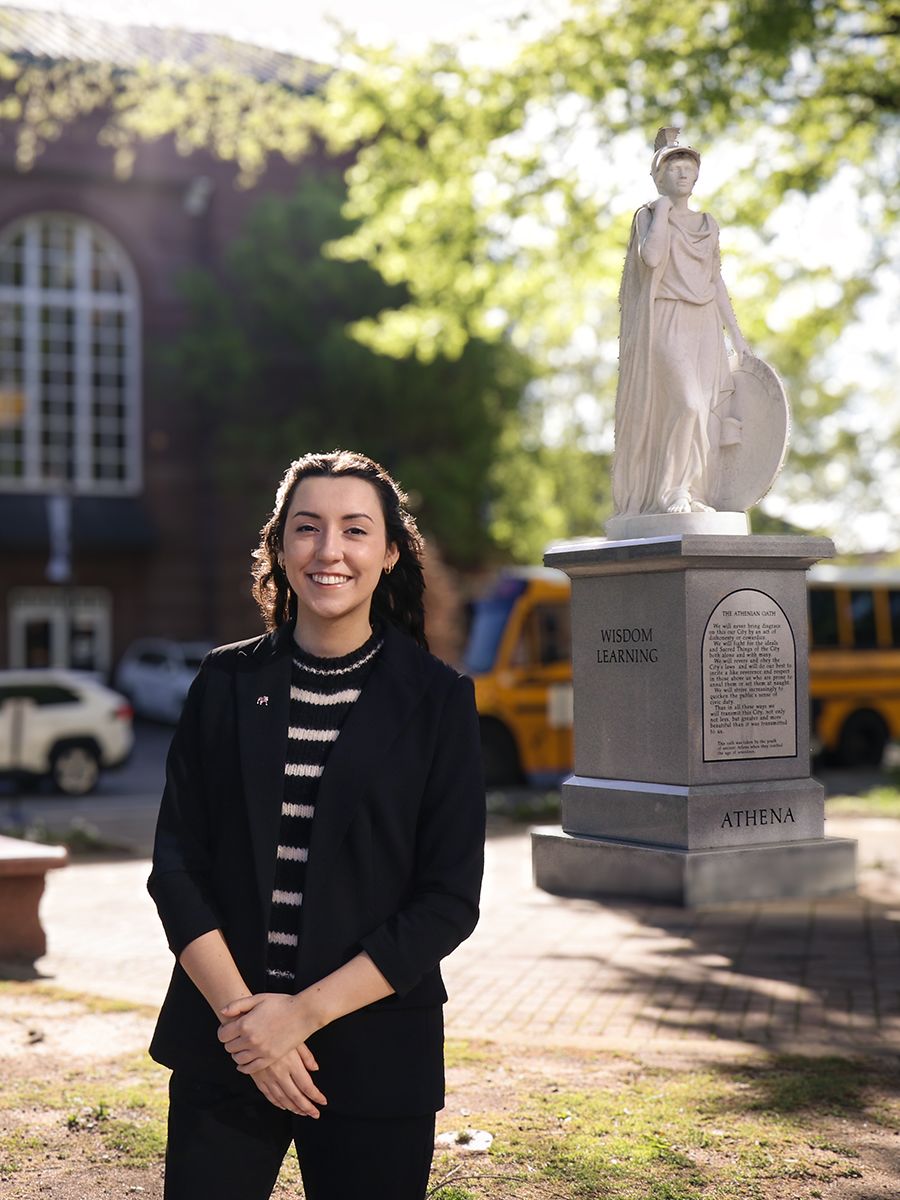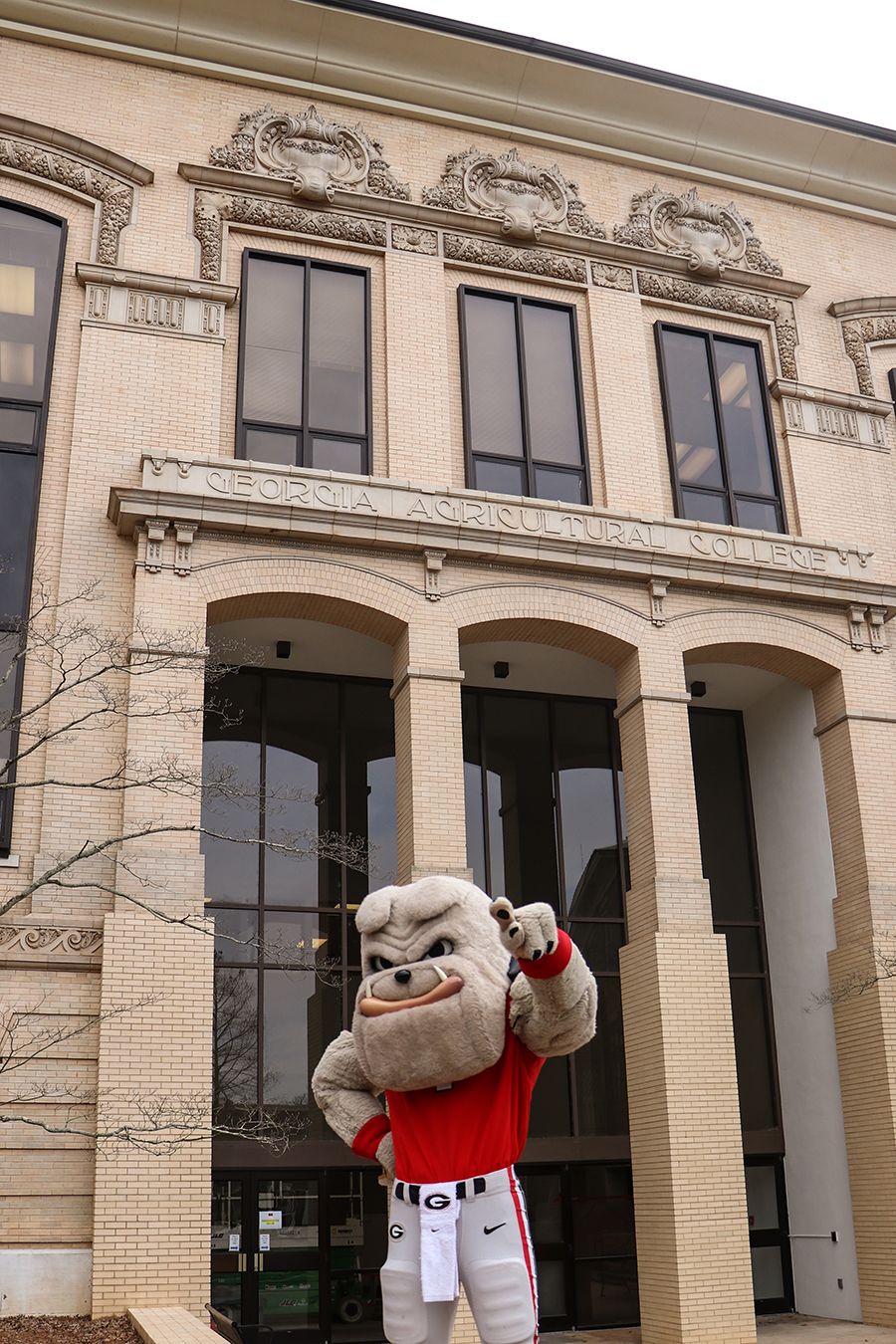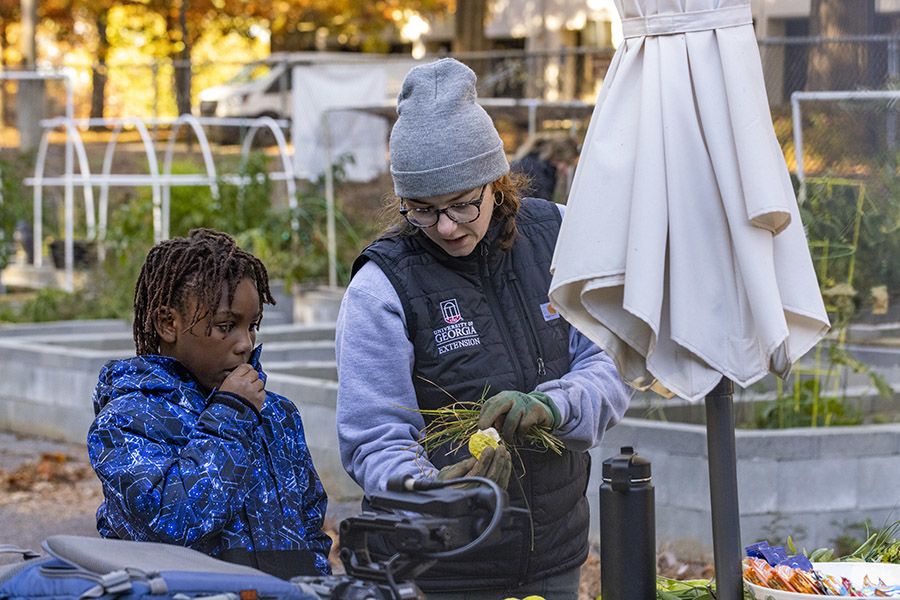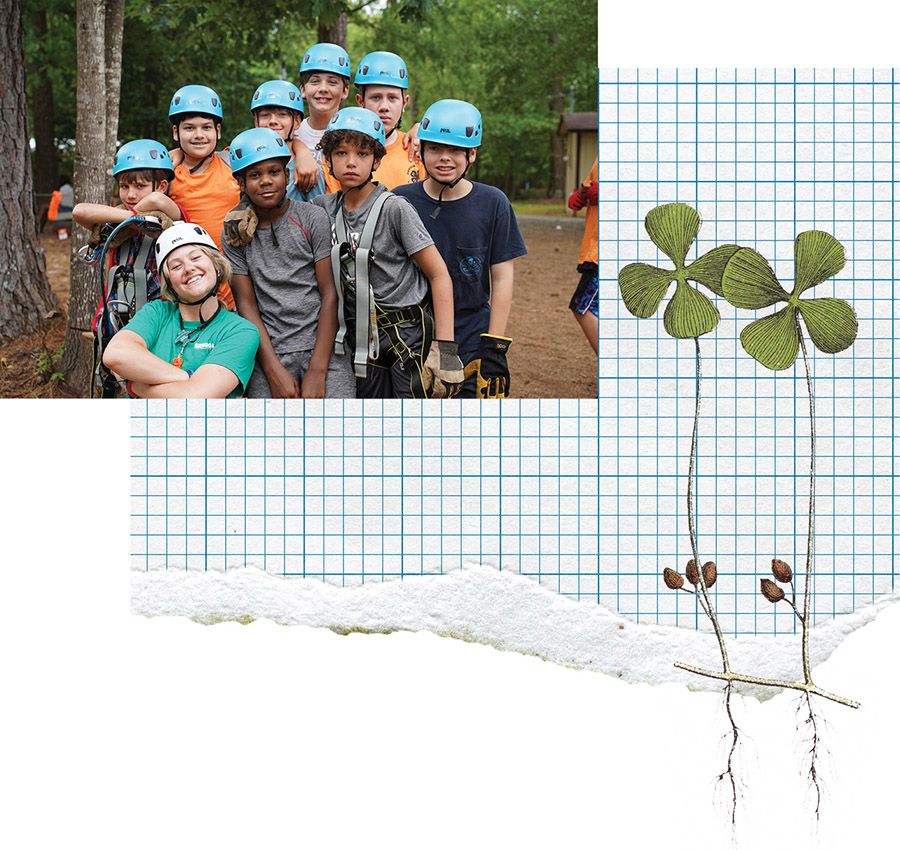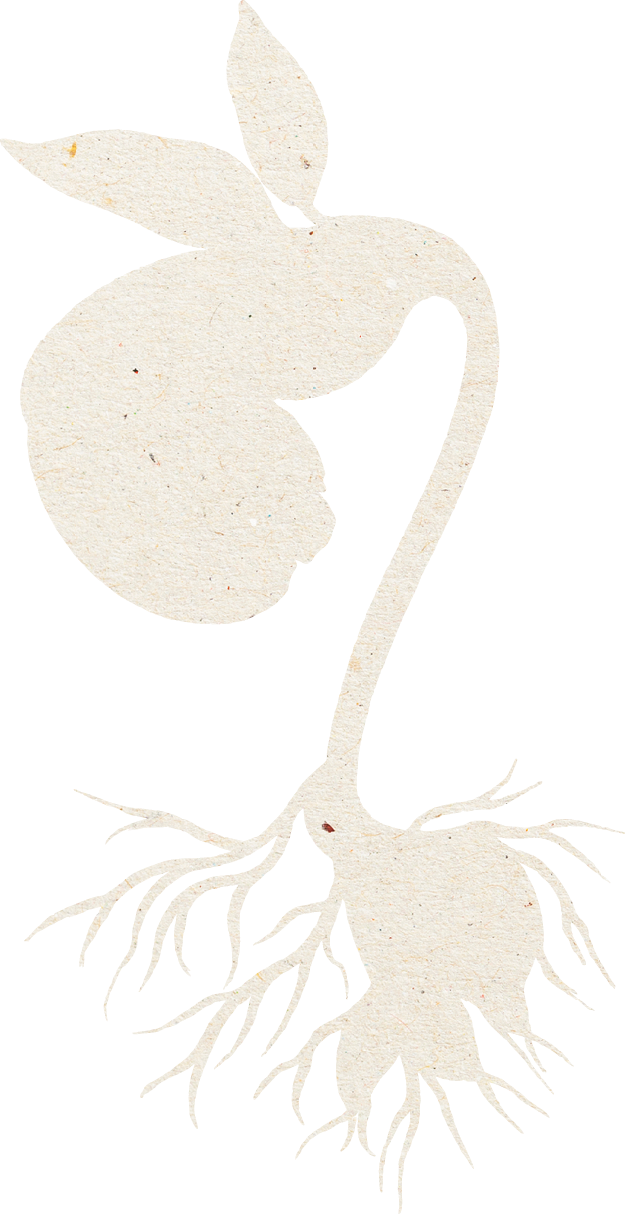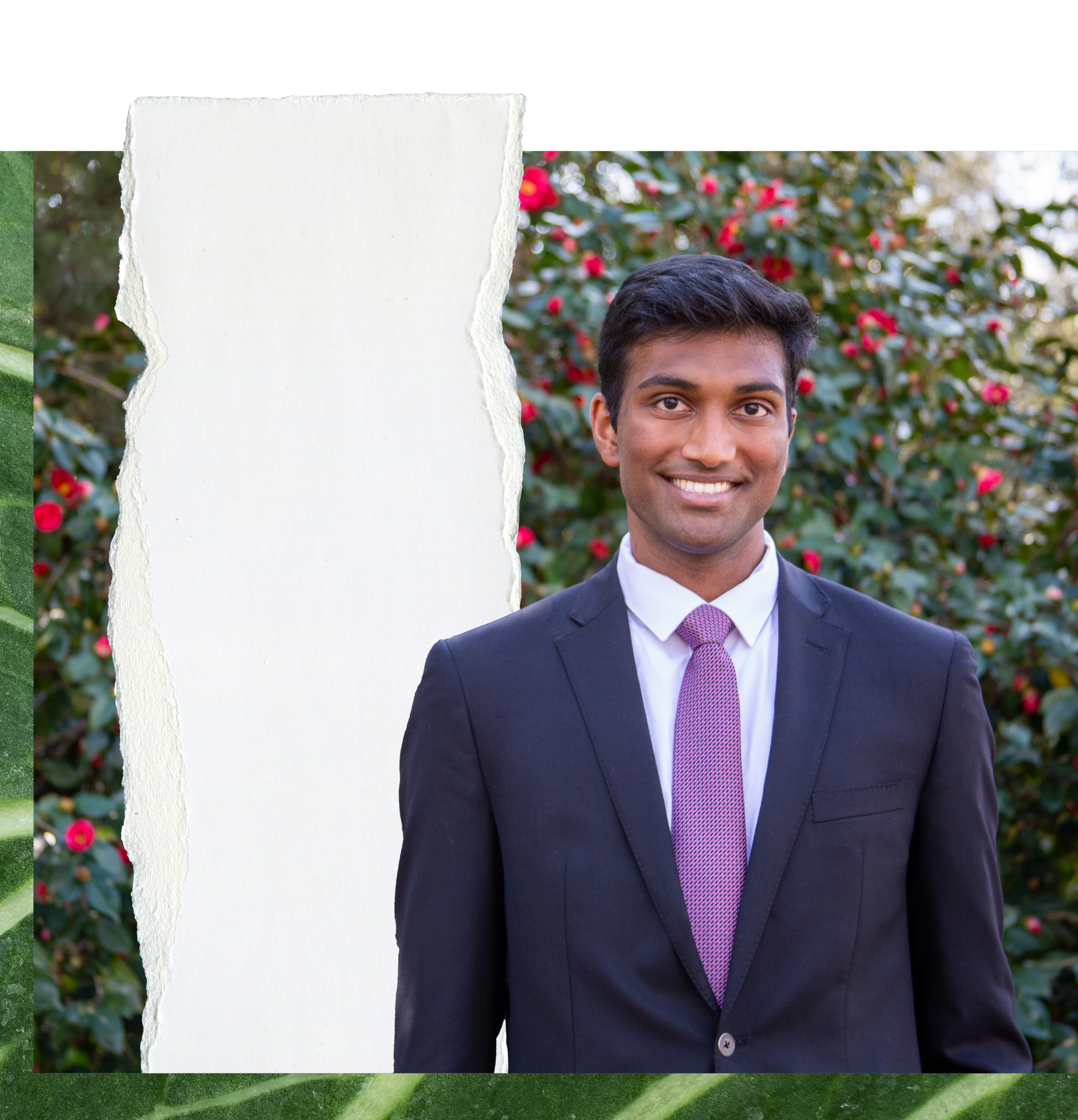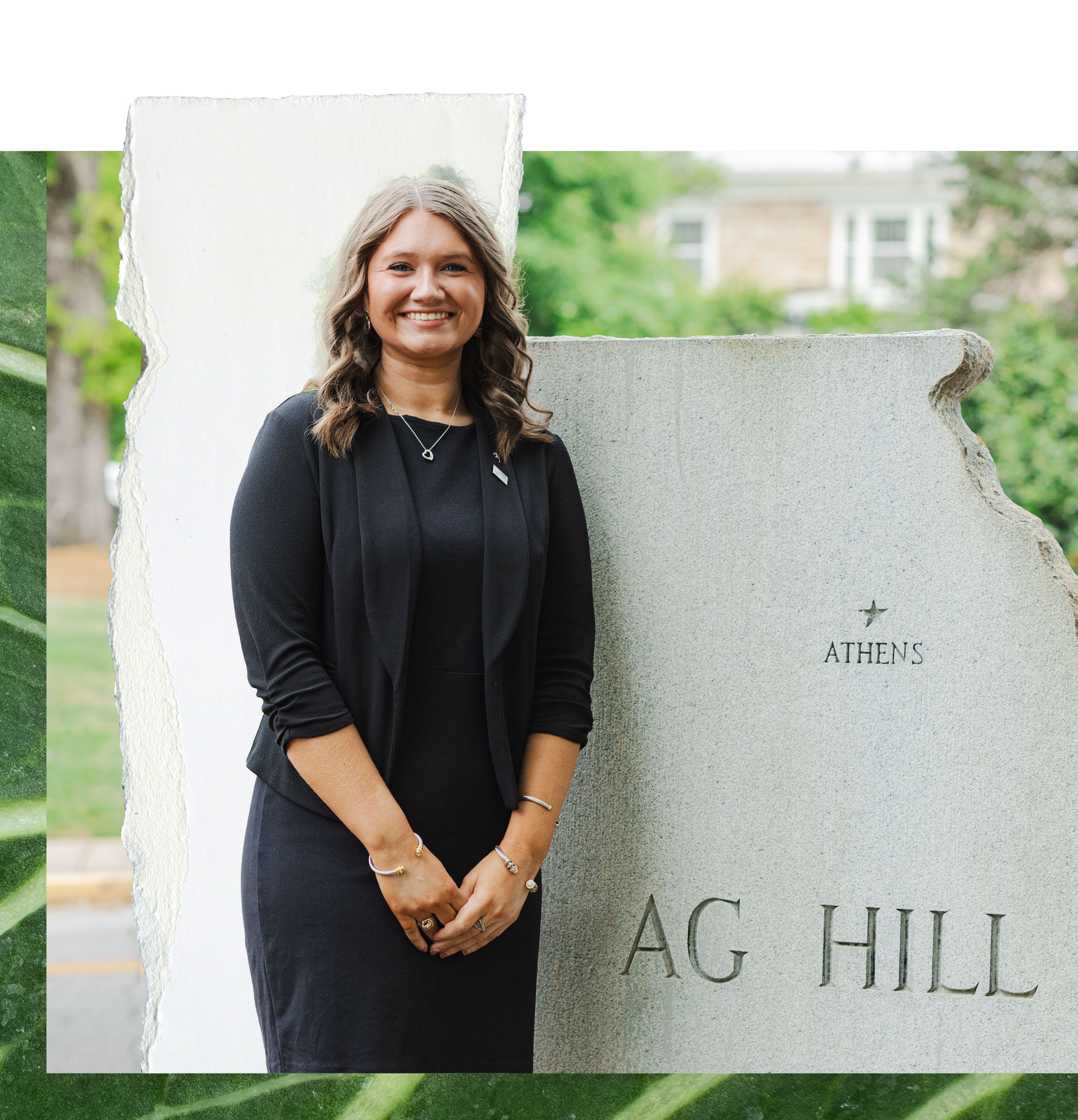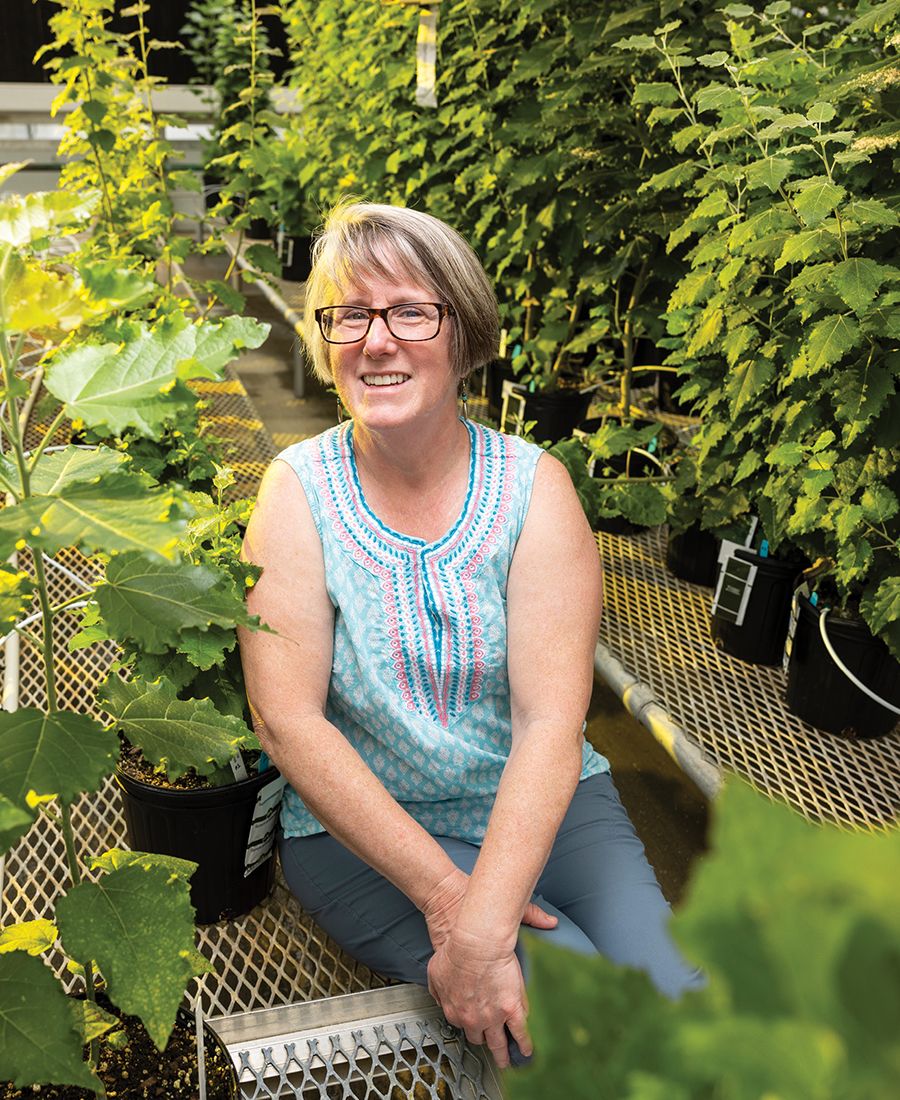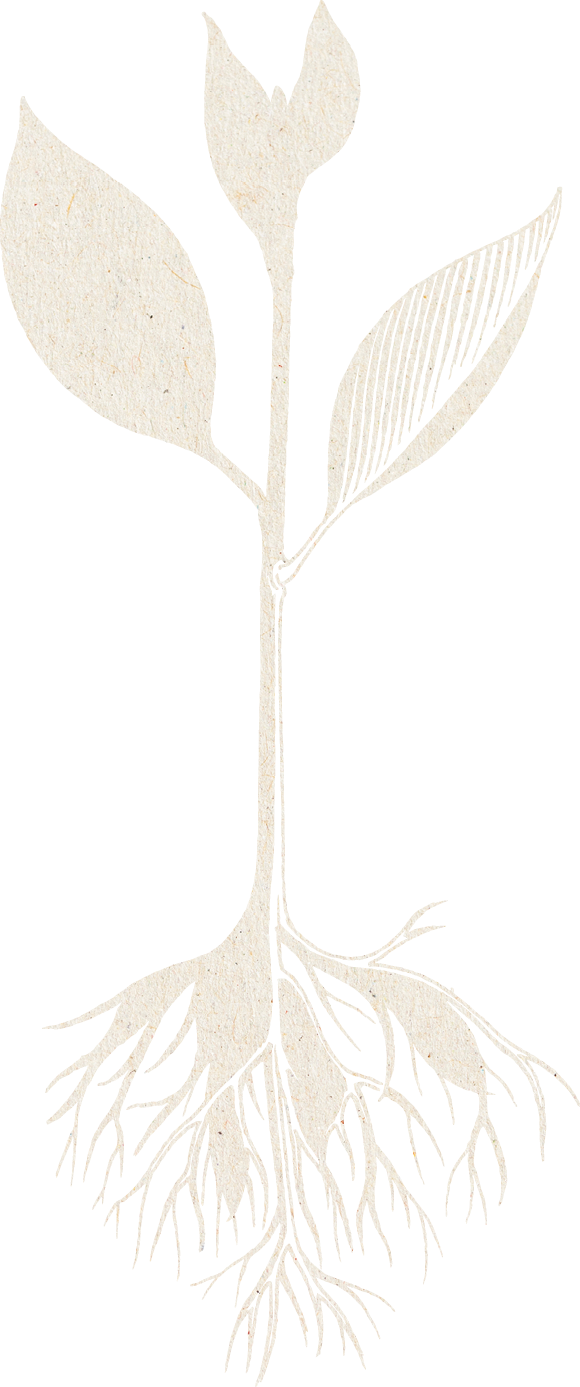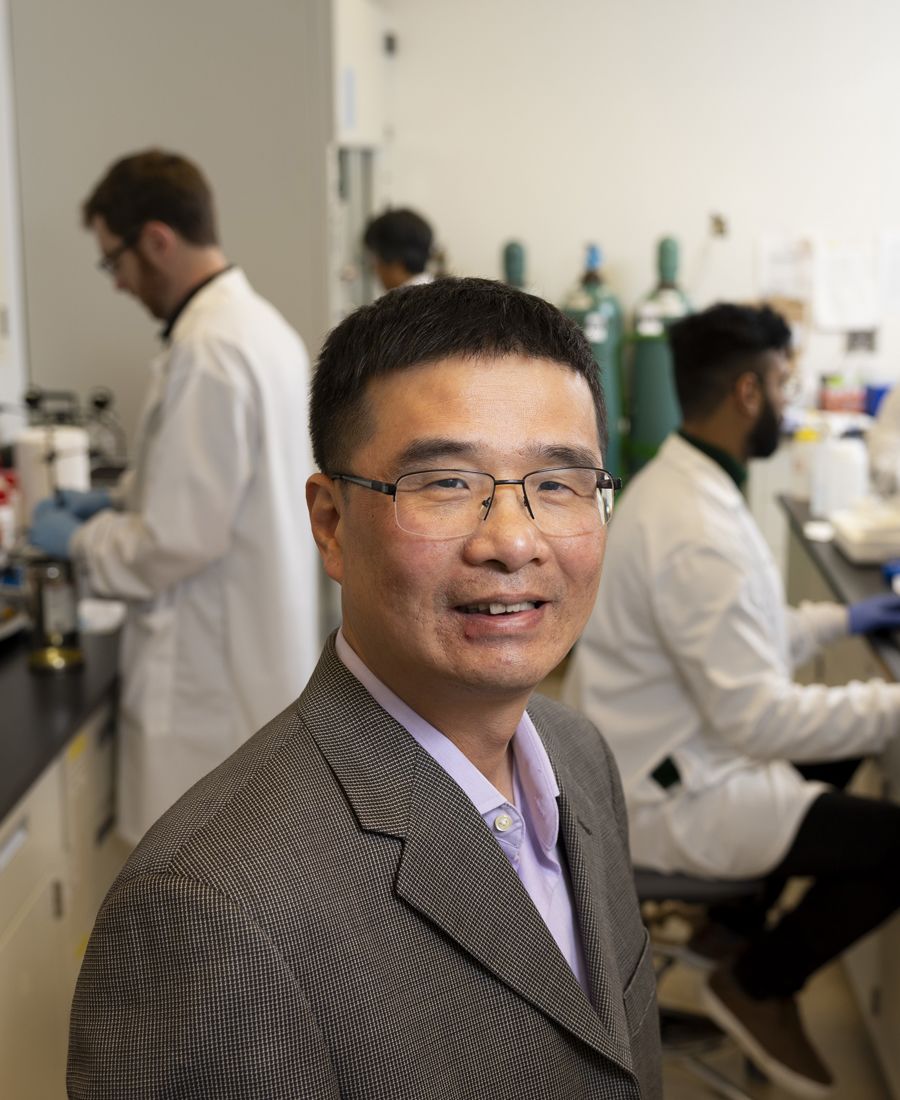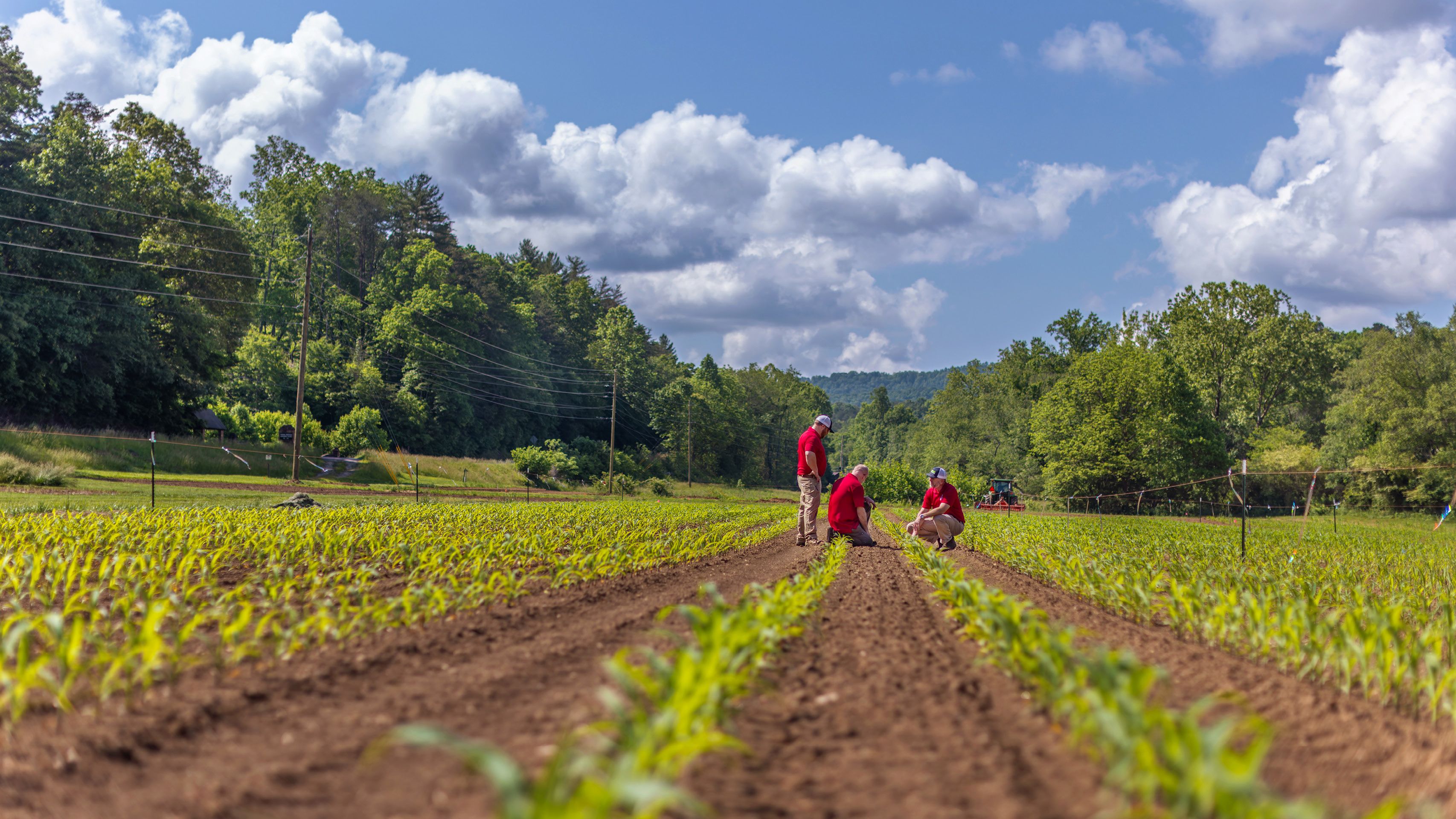
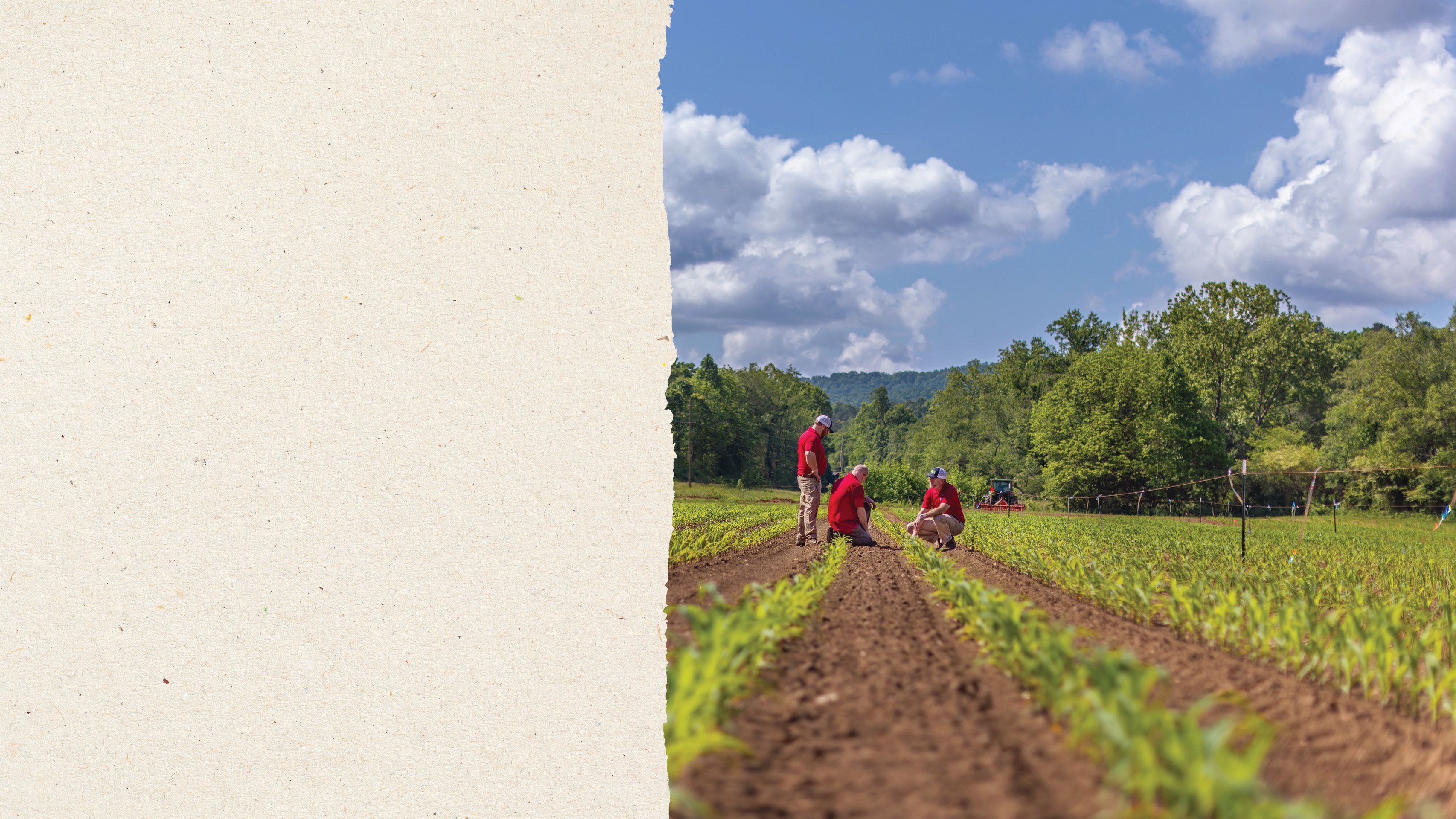
State of Solutions
State of Solutions

IMPACT SUMMARY
CAES Dean Nick T. Place drives a tractor pulling baskets of harvested peaches at Jaemor Farms. (Photo by Lavi Astacio)
CAES Dean Nick T. Place drives a tractor pulling baskets of harvested peaches at Jaemor Farms. (Photo by Lavi Astacio)
Science in service of the future
Each year, we are proud of the work we are doing at the University of Georgia College of Agricultural and Environmental Sciences (CAES), and this year is no different.
We have increased our research capacity across the college, expanded our innovative programming for CAES students, and launched new initiatives that support Georgia citizens. As we look to the future, there is much we can accomplish together as we lead the way in agricultural innovation here in Georgia and around the world.
Nick T. Place, Ph.D.
CAES Dean and Director

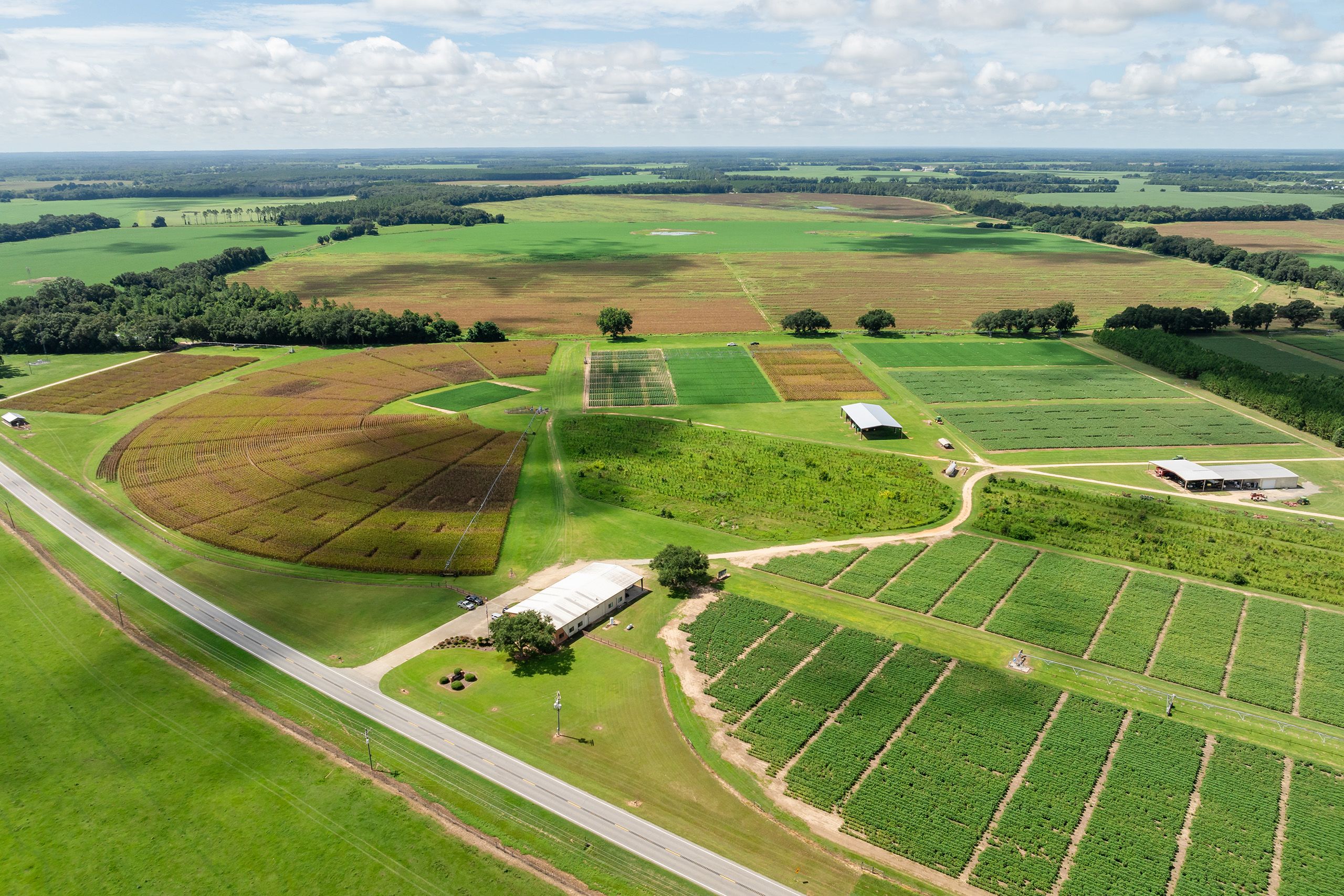
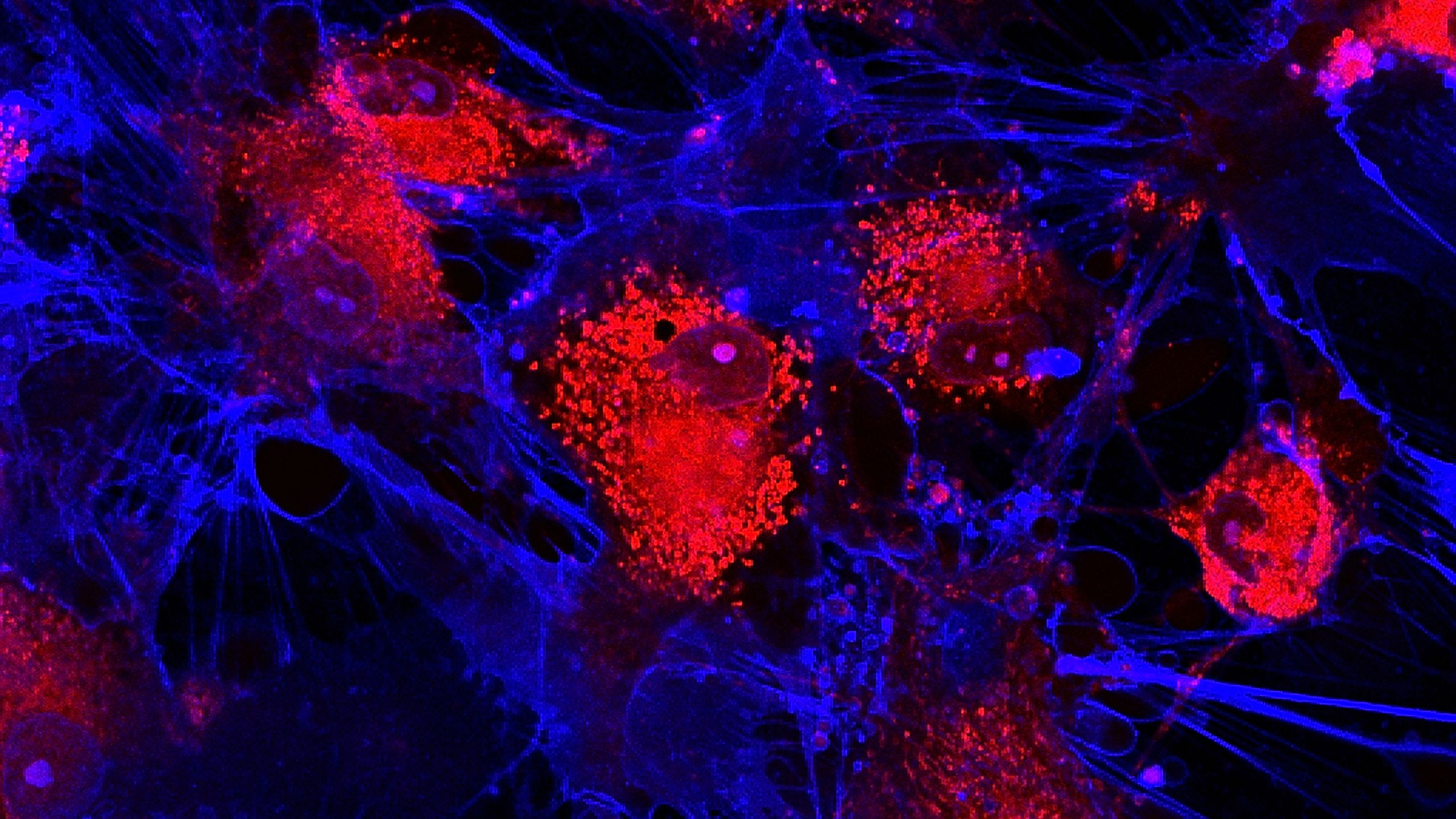
Points of Pride
CAES is building the future of food and farming through innovation, research and strong partnerships. In 2024, our faculty, students and partners achieved milestones that are driving industry growth, sustainability and global impact.
RBC researchers (from left) Jarrod Call, professor of pharmacology in the College of Veterinary Medicine, Franklin West, professor of animal and dairy science, and Steven Stice, D.W. Brooks Professor and Georgia Research Alliance Eminent Scholar Chair in Animal Reproductive Physiology, are investigating novel stem cell treatments for TBI. (Photo by Lauren Corcino)
RBC researchers (from left) Jarrod Call, professor of pharmacology in the College of Veterinary Medicine, Franklin West, professor of animal and dairy science, and Steven Stice, D.W. Brooks Professor and Georgia Research Alliance Eminent Scholar Chair in Animal Reproductive Physiology, are investigating novel stem cell treatments for TBI. (Photo by Lauren Corcino)
Regenerative Bioscience Center
Treating traumatic brain injury
Researchers in the UGA Regenerative Bioscience Center (RBC) are continuing promising research into mesenchymal stem cells as a treatment of traumatic brain injury (TBI) with support from a $3.7 million award from the National Institute of Neurological Disorders and Stroke. The research team is investigating the use of the cells, which could help the brain self-repair by supporting the immune system, helping nerve growth, improving blood flow and mending tissue by releasing tiny particles called extracellular vesicles.
Launched in 2023, new undergraduate and graduate programs in regenerative bioscience have attracted 108 undergraduate students in the regenerative bioscience major and 16 students active in the graduate regenerative bioscience doctoral program.
Smarter farming and stronger businesses through ag tech

IIPA Director George Vellidis (Photo by Paul Privette for CAES)
IIPA Director George Vellidis (Photo by Paul Privette for CAES)
Institute for Integrative Precision Agriculture
CAES Professor George Vellidis was selected as the first permanent director of the Institute for Integrative Precision Agriculture (IIPA) in November 2024. Since its inception in 2022, IIPA has grown to include more than 70 faculty members from across the university. New facilities have been planned and funded, and research teams have submitted four external grant proposals to support research into AI-enhanced imaging for early detection of chicken eggs, developing a mobile robotic system to collect eggs in cage-free poultry housing, automating nursery production operations to increase labor efficiency, and creating a prediction model for breeding tastier roasted peanuts.
On May 1, the institute will host its second international conference in Perry, Georgia, coinciding with the groundbreaking for UGA Grand Farm. Additionally, UGA has been chosen by the International Society of Precision Agriculture to host the 2028 International Conference on Precision Agriculture. At the 2024 conference, four IIPA graduate students were honored with Outstanding Graduate Student Awards.
UGA Grand Farm
UGA Grand Farm, part of a historic partnership between UGA and Fargo, North Dakota-based Grand Farm, earned a Stage Two grant from the U.S. Small Business Administration’s Growth Accelerator Fund Competition. The funding will enable collaboration between UGA Grand Farm and nationwide partners, including Grand Farm, AgLaunch, University of North Dakota, Colorado State University, gener8tor and the Wabash Heartland Innovation Network, to create transformative opportunities for underserved and underrepresented founders of agriculture technology companies. By providing access to training, capital, technology validation and commercialization support, the partnership aims to empower entrepreneurs to bring their ideas to market and address critical challenges in agriculture.

Expanding horizons for CAES students

CAES Rural Scholars
The CAES Rural Scholars program celebrated the graduation of its first Rural Scholar in May. Georgia Orman, a member of the program’s first cohort, graduated with a bachelor’s degree in agricultural education. Designed to recruit and retain outstanding students from underrepresented areas of the state, the Rural Scholars Program was launched in 2020 with two endowed scholarships to provide perpetual funding for students from rural areas, as well as two additional, non-endowed funds to provide immediate support for the program. Since that time, endowed and non-endowed funds have supported recruitment, professional development and scholarships, bolstering the program over the past four years and supporting 14 outstanding students from Georgia’s rural counties.
Transfer Pathways Program
The CAES Transfer Pathways Program is opening new doors for rural students who dream of attending CAES. In partnership with Wiregrass Georgia Technical College and Southern Regional Technical College, students who complete two years of required coursework at these institutions can transfer to CAES to complete bachelor’s degrees in one of three majors — agribusiness, agricultural education, and agriscience and environmental systems. Transfer Pathways students can transfer as juniors to continue in their chosen programs on the university’s Athens, Griffin or Tifton campuses.
Student interns Amy Nguyen (left) and Angela Nguyen (right) review a conference buffet setup with Hannah Miller, student employee trainer for the Georgia Center for Continuing Education and Hotel. (Photo by Peter Frey)
Student interns Amy Nguyen (left) and Angela Nguyen (right) review a conference buffet setup with Hannah Miller, student employee trainer for the Georgia Center for Continuing Education and Hotel. (Photo by Peter Frey)
Hospitality and Food Industry Management
The Hospitality and Food Industry Management (HFIM) program has experienced exponential growth since it was established in 2019. From fall 2019 through spring 2024 it was the second-fastest-growing undergraduate major at UGA, with 102 majors and a 436.8% growth rate since its establishment. In 2024, the program had its largest graduating class since its inception with 29 graduates, the fourth highest among CAES majors. In 2024, Niche.com ranked UGA the No. 1 public school in America for colleges with hospitality and tourism management programs. UGA HFIM was also ranked a top-five U.S. hospitality program in the U.S. News college rankings, tied among public and private universities. Since 2019, there have been more than 224 individual internship assignments at 106 companies throughout 15 states, the District of Columbia, Italy and the U.K. The HFIM program produced the eighth-highest number of candidates nationwide for the Marriott Hotels & Resorts competitive management training, the Marriott Voyage Program, in 2024.
Ensuring a safer and better food supply
Avian flu prevention
UGA Cooperative Extension and CAES are on the front line of efforts to prevent and detect highly pathogenic avian influenza (HPAI) in domestic poultry flocks in Georgia. As Georgia poultry producers carefully monitor the progress of HPAI in the U.S., including early cases in Georgia, UGA Extension and CAES have been instrumental in disseminating information on protecting their flocks. The CAES Department of Poultry Science created an informational webpage regarding avian influenza to provide UGA, state and federal information resources for interested clientele, and county Extension agents have been trained to help clients with concerns regarding small flock poultry production and biosecurity efforts.
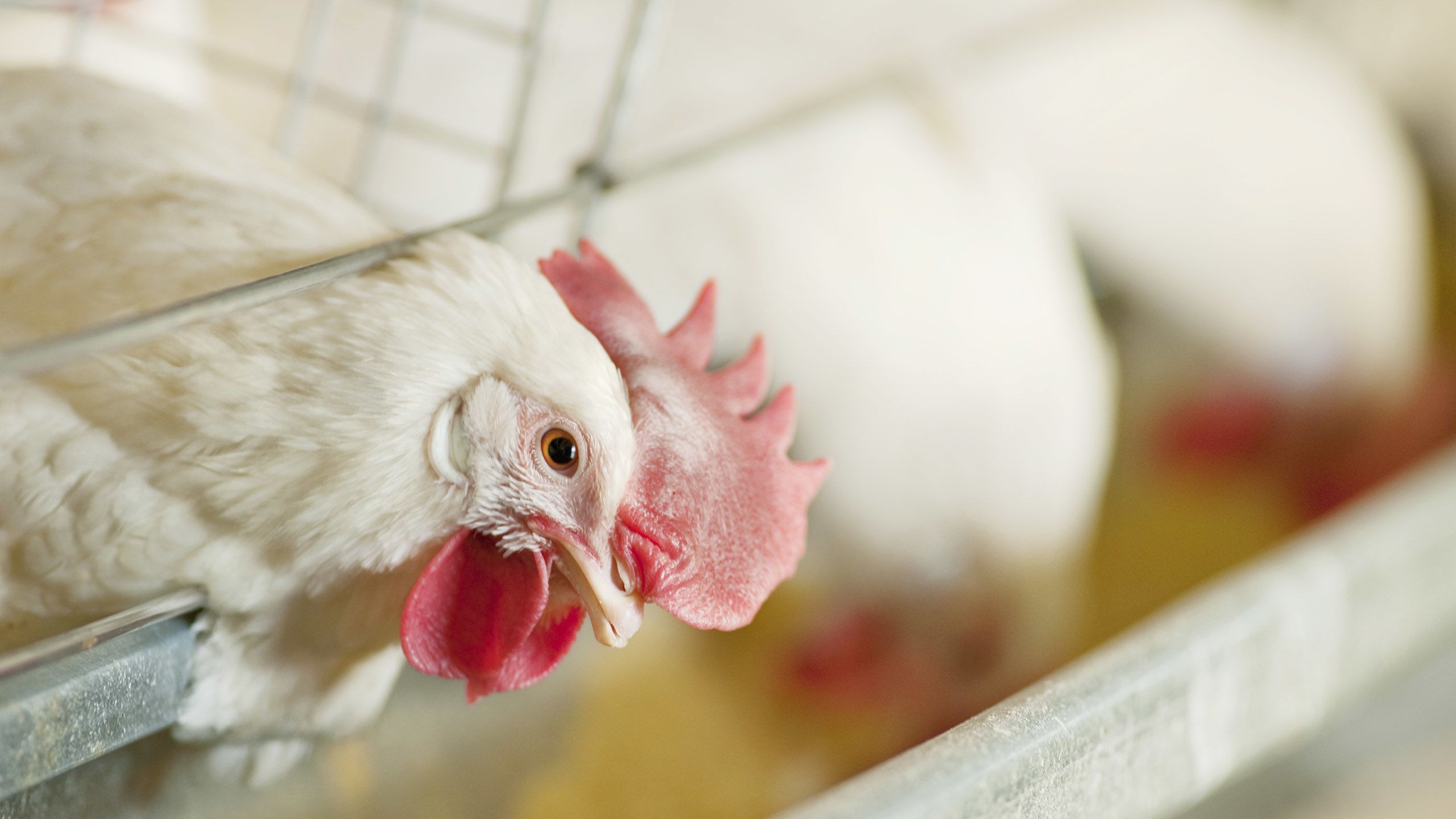
Center for Food Safety
The UGA Center for Food Safety (CFS) conducted and completed its 2025-2030 Strategic Plan in 2024 and held a successful 2024 Annual Meeting with 152 attendees in March. CFS hosted two Safe Foods Forum events in March and October with more than 45 attendees from the Centers for Disease Control and Prevention and industry representatives.
FoodPIC
FoodPIC worked with many clients in 2024, including Will McGehee of Pecan Nation. FoodPIC and affiliate Chef Edouard Moyal worked to develop Pecan Nation’s first savory flavor of roasted pecan — barbecue. Within a month of the project’s completion, McGehee introduced the product to convenience and grocery store chains and the product will now be sold in more than 10,000 stores nationwide.
Chris Miller of Splitz Foods and UGA Department of Food Science and Technology student Reid Robertson worked together to create a line of vegan, gluten-free croutons in three varieties — Italian, Southwest, and Vegan Cheese and Garlic — which will debut in Spring 2025 on Splitz Food’s new Pea-tons website.

UGA was selected to partner with Fulbright Romanian-American Foundation Scholars to help develop a Romanian extension service model based off of UGA Extension. From left, CAES Associate Professor Abigail Borron and Romanian scholars Mihai Suteu, Daniyar Memedemin, Alina Zaharia, Andreea Ona and Daniel Chiciudean stand in front of an image of the Romanian flag projected onto a barn at UGArden in Athens, Georgia. (Photo by Dennis McDaniel for CAES)
UGA was selected to partner with Fulbright Romanian-American Foundation Scholars to help develop a Romanian extension service model based off of UGA Extension. From left, CAES Associate Professor Abigail Borron and Romanian scholars Mihai Suteu, Daniyar Memedemin, Alina Zaharia, Andreea Ona and Daniel Chiciudean stand in front of an image of the Romanian flag projected onto a barn at UGArden in Athens, Georgia. (Photo by Dennis McDaniel for CAES)
Susana Ferreira, professor in the Department of Agricultural and Applied Economics (Photo by Jason Thrasher)
Susana Ferreira, professor in the Department of Agricultural and Applied Economics (Photo by Jason Thrasher)
Global initiatives and powerful local impacts
Office of International Programs
The Office of International Programs launched the International Networking Study Program for Inspired Research Expansion (AgINSPIRE) program in 2024 to provide funding for up to three months of study leave for CAES faculty to build international research collaborations. The office also established the CAES International Lectureship Program to improve CAES research collaboration with top-ranked international institutions, supporting weeklong visits to UGA by international researchers. The Romanian Extension Development Program is in its second year, and to date, 10 Romanian professors have completed Fulbright Fellowships at UGA focused on learning the UGA Extension model and envisioning a sustainable outreach model for delivering agricultural education and advisory services to rural communities in Romania.
Department of Agricultural and Applied Economics
Each year, the Department of Agricultural and Applied Economics produces the Georgia Ag Impact Report to provide the state’s agricultural stakeholders with the research-backed insights they need to support Georgia’s No. 1 industry. Based on the 2023 Georgia Farm Gate Value Report, an annual county-level economic evaluation for all food and fiber production in the state, Georgia commodities directly represent a value of more than $17.6 billion to the state’s economy. In 2023, food and fiber production and related industries contributed $91.4 billion in output to Georgia’s $1.4 trillion economy and more than 381,200 jobs. This fall also marked the launch of “Climate Change Economics and Policy” (ENVM 3050), an innovative course that explores climate policy from an economic perspective taught by Professor Susana Ferreira and Assistant Professor Lusi Xie.
BY THE NUMBERS

ACADEMICS
1,495
undergraduate students enrolled for fall semester
RESEARCH & DEVELOPMENT
$54.8M
in research expenditures
$62.5M
in federal funding
$77.1M
in new awards
106
postdoctoral research associates
CAES doctoral students Leniha Lagarde (left) and Sofia Varriano collect samples from pastured chickens at Foster Brady Farms in Madison, Georgia. Their “ChickEES” project analyzes DNA in chicken feces to study their diet and help producers understand how chickens control pests and weeds. (Photo by Maria Lameiras)
CAES doctoral students Leniha Lagarde (left) and Sofia Varriano collect samples from pastured chickens at Foster Brady Farms in Madison, Georgia. Their “ChickEES” project analyzes DNA in chicken feces to study their diet and help producers understand how chickens control pests and weeds. (Photo by Maria Lameiras)
4
active student start-ups, all revenue generating
Aruna Bio, a clinical stage company co-founded by D.W. Brooks Distinguished Professor Steven Stice, has developed a proprietary neural exosome platform capable of crossing the blood-brain barrier to target neurological diseases. The company received FDA approval for a Phase 1b/2a clinical trial of its lead product, AB126 (pictured) in patients with an acute ischemic stroke.
Aruna Bio, a clinical stage company co-founded by D.W. Brooks Distinguished Professor Steven Stice, has developed a proprietary neural exosome platform capable of crossing the blood-brain barrier to target neurological diseases. The company received FDA approval for a Phase 1b/2a clinical trial of its lead product, AB126 (pictured) in patients with an acute ischemic stroke.
6
new faculty startups in development, all revenue-generating
7
Foundation for Food and Agriculture Research (FFAR) Fellows supported
FFAR Fellow Shreen Pradhan’s research focuses on salinity stress in agriculture.
FFAR Fellow Shreen Pradhan’s research focuses on salinity stress in agriculture.
ALUMNI & GIVING
21,217
living CAES alumni
13,335
CAES alumni living in Georgia
$12,338,576
in private support for the college
$315,735
CAES alumni donations
Maya Dubos, a 2024 hospitality and food industry management graduate, is the first in her family to earn a degree. “As a CAES scholarship recipient, I can personally attest to the impact donors have in the lives of students,” she said. Dubos is now an event coordinator with the Cobb Galleria Centre. (Photo by Katie Walker)
Maya Dubos, a 2024 hospitality and food industry management graduate, is the first in her family to earn a degree. “As a CAES scholarship recipient, I can personally attest to the impact donors have in the lives of students,” she said. Dubos is now an event coordinator with the Cobb Galleria Centre. (Photo by Katie Walker)
EXTENSION
332
county Extension agents
1,057
Extension employees
159
counties
Young student Maxwell Barton and Fulton County Extension Agent Gabrielle LaTora pull weeds from a planting bed during a work day at the North Fulton Community Garden in Atlanta. (Photo by Dorothy Kozlowski)
Young student Maxwell Barton and Fulton County Extension Agent Gabrielle LaTora pull weeds from a planting bed during a work day at the North Fulton Community Garden in Atlanta. (Photo by Dorothy Kozlowski)
1,756,355
in-person contacts
200,067
health and wellness in-person
466,550
agriculture-related in-person contacts
216,962
continuing education units provided to clients
133,034
diagnostic samples for soil, water and disease
Map compiled by Anthony Barkdoll
Growth Agents
Explore the journeys of students, faculty and innovators who are working for brighter futures in healthcare access, sustainable agriculture and more
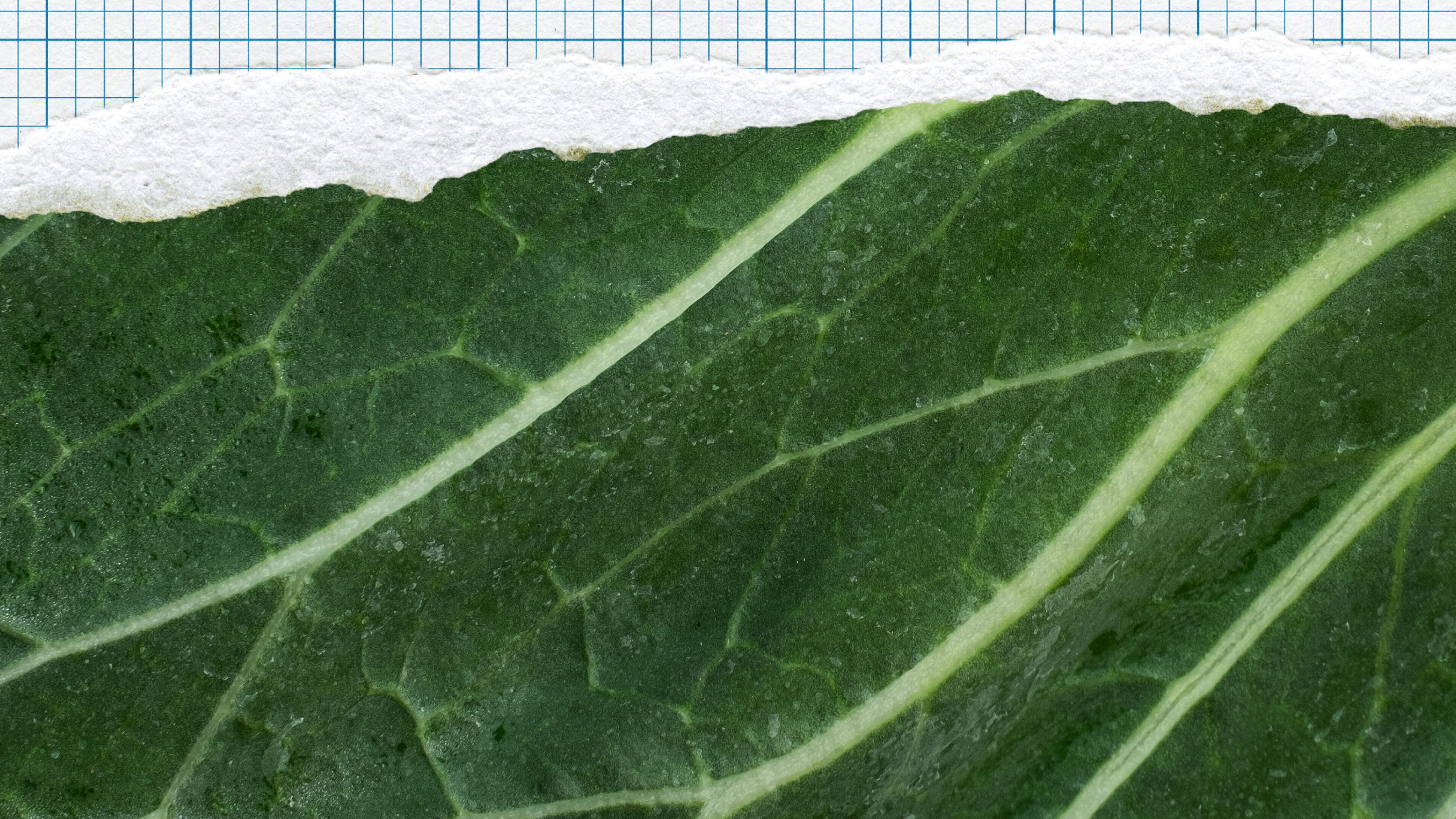
Yash Sajjan
Bachelor’s degrees in applied biotechnology, microbiology and biomedical physiology
Yash Sajjan is a senior studying applied biotechnology, microbiology and biomedical physiology. His mission to promote healthcare education in underserved communities inspired him to join the PROPEL Rural Scholars Program and to serve as president of Science Olympiad at UGA. Through this experience, he has gained insight into the various factors influencing healthcare decisions in these communities. Sajjan also serves as the director of undergraduate affairs for Catalyst, an academic journal founded to showcase UGA’s novel research and provide insight into the process behind peer-reviewed scientific publications. In this role, Sajjan works with UGA’s various colleges to garner support for the journal and encourage submissions.
Sajjan will be attending medical school in the fall and continue on his path to provide rural communities in Georgia with equitable access to healthcare resources.
“CAES has given me the opportunity to connect with researchers and faculty to facilitate my goals. The support I have received from the college for the organizations I lead has been invaluable, and I know I can rely on the college to deliver on their promises. Through these interactions, I have been able to strengthen my passions and find my place academically within the CAES community.”
Gracie James Grimes
Major in animal and dairy science, minor in agribusiness and management
Gracie Grimes, a senior in animal and dairy science at CAES, hails from Metter, Georgia, where she grew up on a small rural livestock farm. Her passion for agriculture, particularly animal agriculture, began early, shaped by her involvement in Georgia 4-H and FFA. This led to a strong commitment to advocating for the industry and bridging the gap between consumers and producers.
Grimes has held numerous leadership roles at CAES, including membership in the first Rural Scholars cohort, serving as a CAES ambassador, and contributing to the CAES Student Philanthropy Council and the Young Farmers and Ranchers Executive Committee. She also works as a student employee in the CAES Office of Development and Alumni Relations.
In 2023, Grimes competed on the UGA Meat Judging Team, gaining insights into meat science, food animal production, and humane processing practices. At the High Plains Intercollegiate National Meat Judging Contest, she earned first place in lamb judging with a perfect score and ranked third overall. She also served as a Georgia Farm Bureau Federation Ambassador in 2022 and 2023, advocating for farmers and learning about agricultural policy.
In 2024, Grimes was a CAES Congressional Agricultural Fellow in U.S. Rep. Sanford Bishop’s office in Washington, D.C. She observed U.S. Farm Bill and Agricultural Appropriations Bill markups, wrote briefs, and participated in meetings with agricultural organizations, gaining firsthand experience in how policy impacts farmers and ranchers.
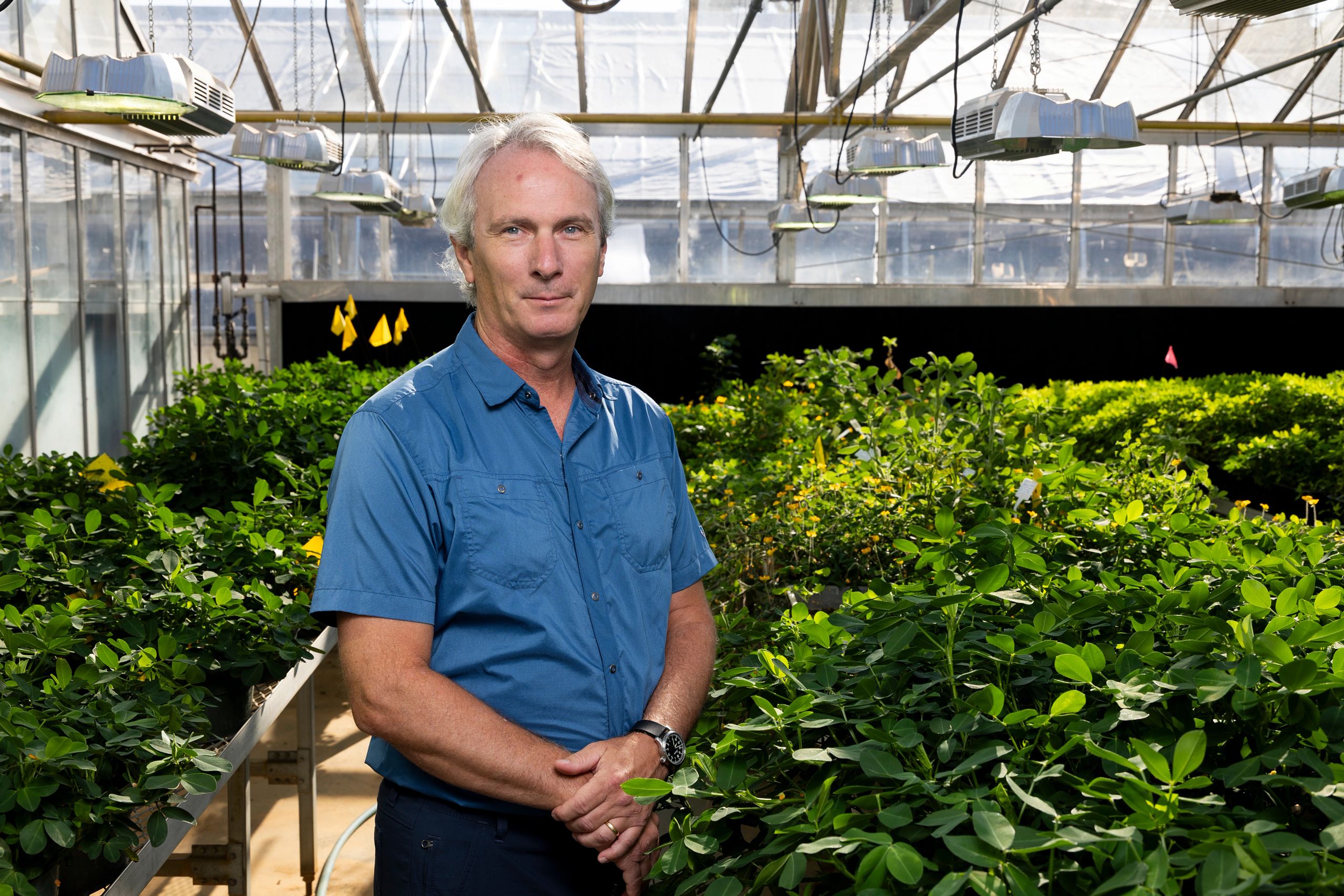
Scott Jackson
Georgia Research Alliance Eminent Scholar in Synthetic Biology
Scott Jackson, a globally recognized plant genetics researcher, has returned to CAES as the first Georgia Research Alliance Eminent Scholar in Synthetic Biology. His research focuses on connecting plant DNA sequences to their functions to enhance the productivity and sustainability of economically vital crops. In this new role, Jackson will leverage advanced modeling to study how multiple interacting genes influence agricultural systems, working from DNA and molecules to entire production systems.
Robin Buell
Georgia Research Alliance Eminent Scholar Chair in Crop Genomics
Robin Buell, Georgia Research Alliance Eminent Scholar in Crop Genomics, specializes in comparative genomics and bioinformatics. Her expertise led her to become the principal investigator on a $15.8 million Department of Energy grant focused on genetically engineering poplar trees for biofuel production and other applications. Beyond her research, Buell directs the UGA Plant Center, where she brings together experts from across the university and visiting institutions to advance plant science through interdisciplinary collaboration.
Jack Huang
Professor, Crop and Soil Sciences
CAES researcher Qingguo “Jack” Huang has pioneered a breakthrough in eliminating PFAS (per- and polyfluoroalkyl substances), the human-made, persistent “forever chemicals” used in a plethora of consumer products. PFAS, which accumulate in the environment and the human body, pose both health risks and degradation challenges. Huang’s electrochemical oxidation process, licensed by global firm AECOM and marketed as DE-FLUORO, is the first eco-friendly technology to degrade PFAS rather than just contain them. This innovation offers a cost-effective solution for wastewater treatment and has earned Huang UGA’s 2024 Inventor of the Year award. His team continues exploring new PFAS removal methods in soil and water.
Robin Buell, crop and soil sciences professor, poses for a photo among poplar tree specimens in a greenhouse at UGArden. (Photo by Chamberlain Smith)
Robin Buell, crop and soil sciences professor, poses for a photo among poplar tree specimens in a greenhouse at UGArden. (Photo by Chamberlain Smith)
Environmental portrait of Qingguo (Jack) Huang in a Griffin campus laboratory. (Photo by Andrew Davis Tucker)
Environmental portrait of Qingguo (Jack) Huang in a Griffin campus laboratory. (Photo by Andrew Davis Tucker)
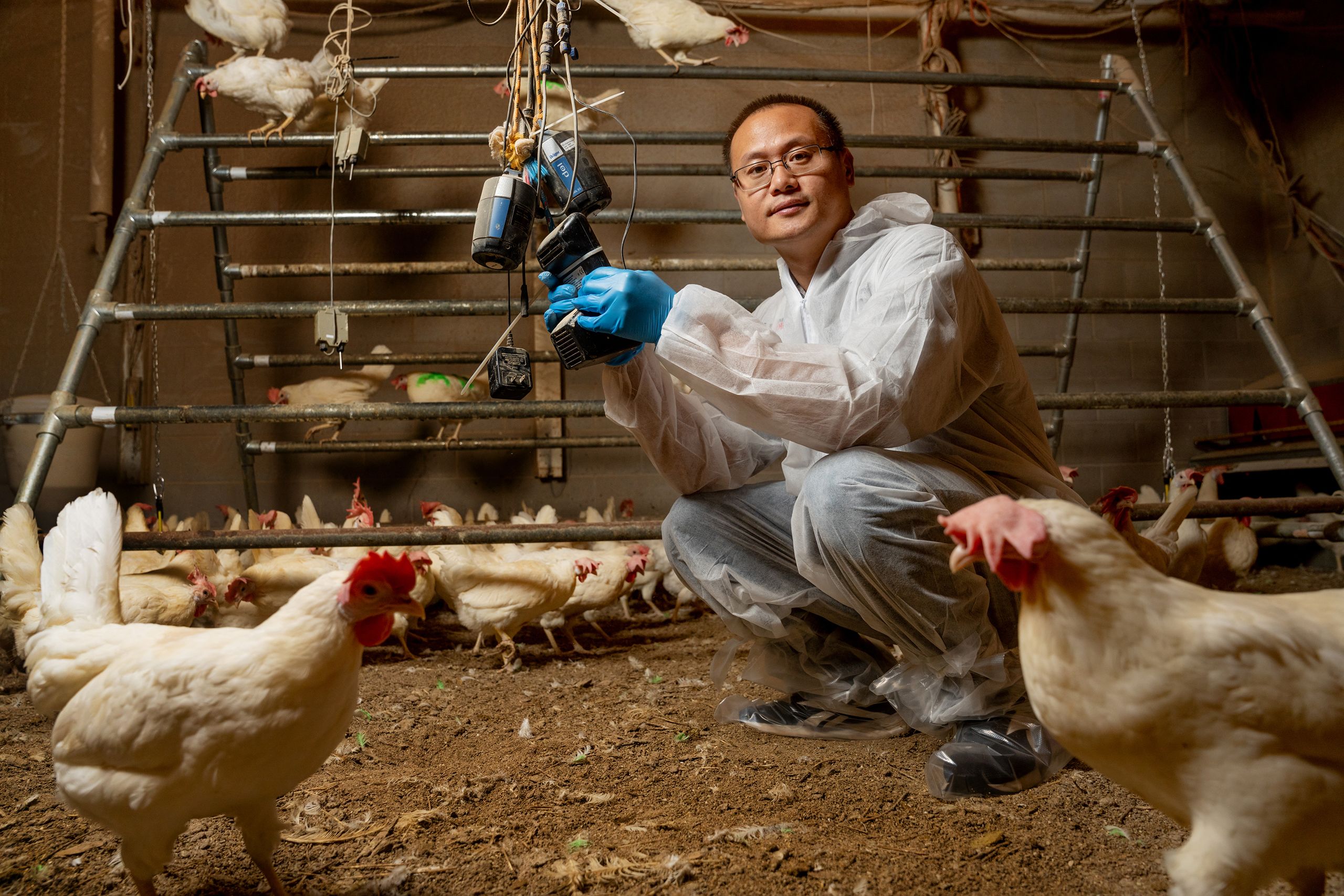
Lilong Chai
Associate professor, poultry science
Lilong Chai, an associate professor in the Department of Poultry Science, is advancing precision poultry farming to improve welfare and efficiency in cage-free egg production. His research integrates machine vision and robotics to monitor hen behavior, reduce aggression and track egg-laying patterns. Chai’s team is also tackling air quality challenges in aviaries using electrostatic particle ionization, which reduces harmful dust levels by 70%. These innovations support safer, more sustainable systems as the industry moves toward broader adoption of cage-free egg production.
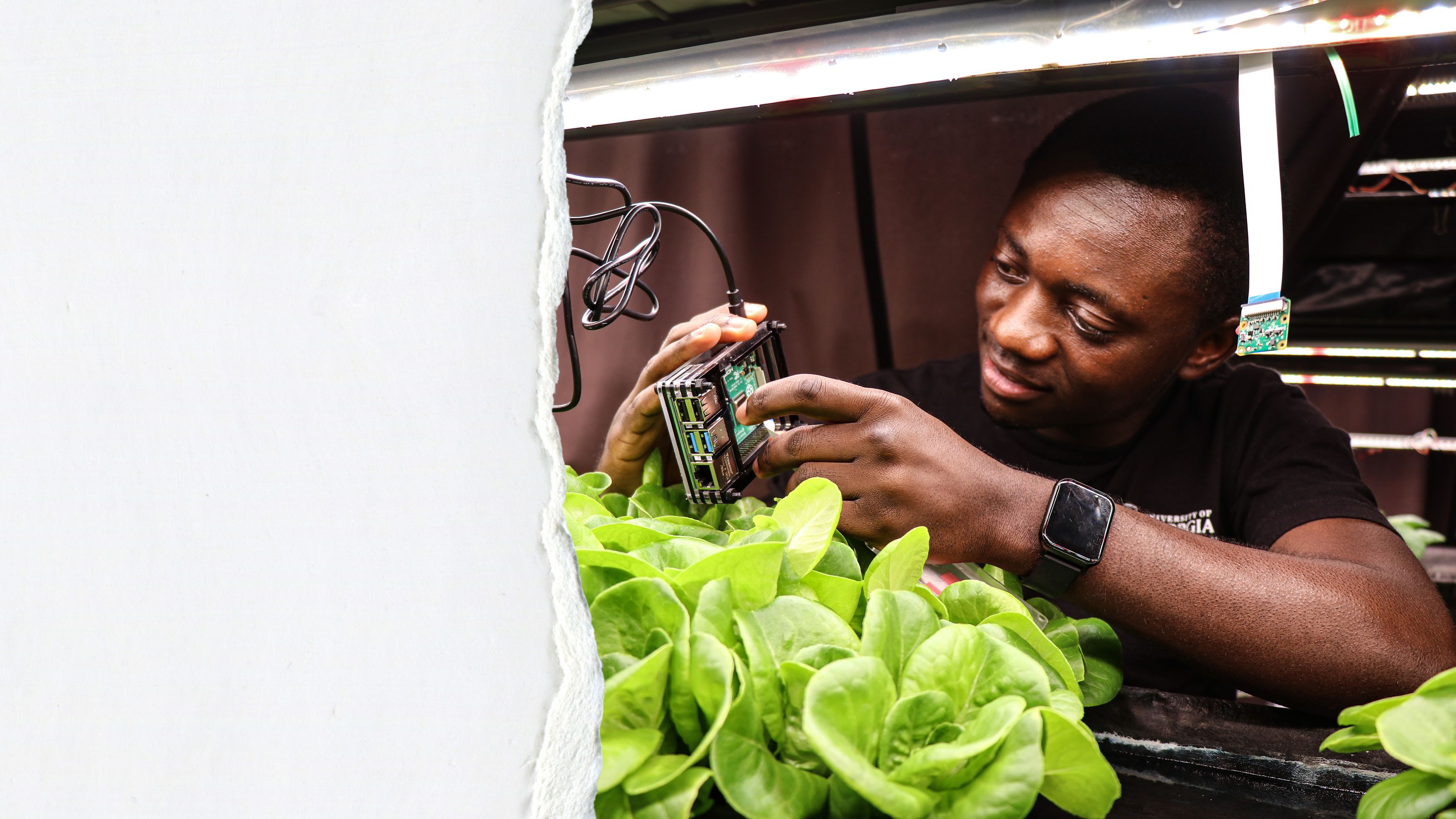
CAES transforms ideas into impact.
CAES turns groundbreaking research and innovative ideas into real-world solutions, shaping a sustainable future for people and the planet.
Through hands-on learning and cutting-edge science, our students and faculty drive change that improves lives and protects the environment for generations to come.
We’re building a future to be excited about. Explore more stories, podcast episodes and more below.

